Project Wake 2025 Theme:
A Brave New World
Amid profound global and local change, you are entering a new environment and phase in your life, your own “Brave New World.” You might begin to question what is truth and what is fiction, what it will mean to be a citizen in our democracy, how you will be able to craft your own identity and community freely in our evolving world, how AI and other emerging technologies will alter your world, and possibly even what it means to be human.
Students will be able to choose from a diverse range of texts and media, including written works (books, plays, op-eds, graphic novels), film, video games, musical compositions, podcasts, and visual art.
Discussions will take place on Sunday, August 24th.
Project Wake Discussions and Leaders:
Discussion Leader: Dr. Bradley Burroughs
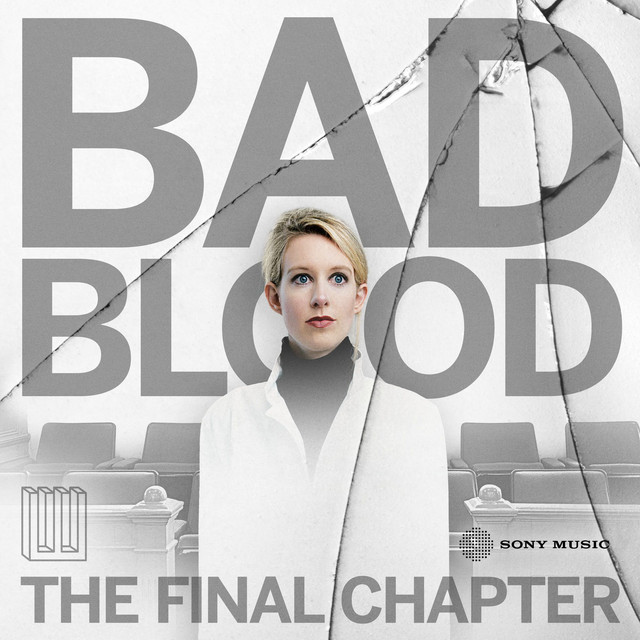
Bad Blood: The Final Chapter” recounts the saga of Elizabeth Holmes, who heralded a brave new world when she founded Theranos, a startup that promised to revolutionize medical care by developing machines capable of running over 200 tests on a single drop of blood. As her fame grew, Holmes was lauded as the first female self-made billionaire. But as John Carreyrou discovered with the help of a whistleblower named Tyler Shultz (who will be visiting Wake Forest on September 22), Theranos was a fraud. This podcast shines a light on the dynamics of human innovation—and how they are plagued by ambition, hubris, and deception.
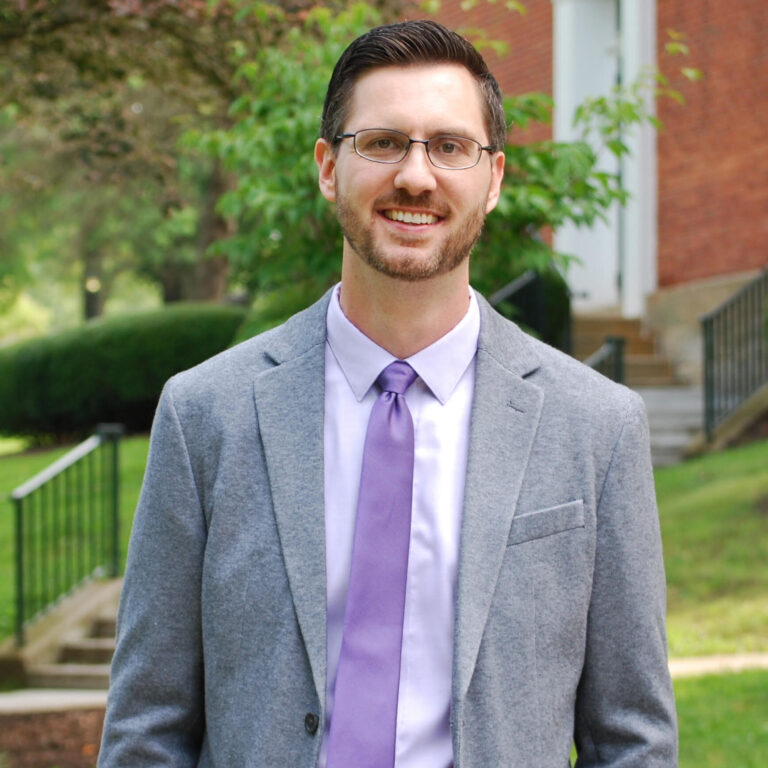
Bradley Burroughs is the Director of Leadership and Character in Academic, Civic, and Religious Life at Wake Forest University. An ethicist by training, his work explores how character is formed and its role in contemporary life.
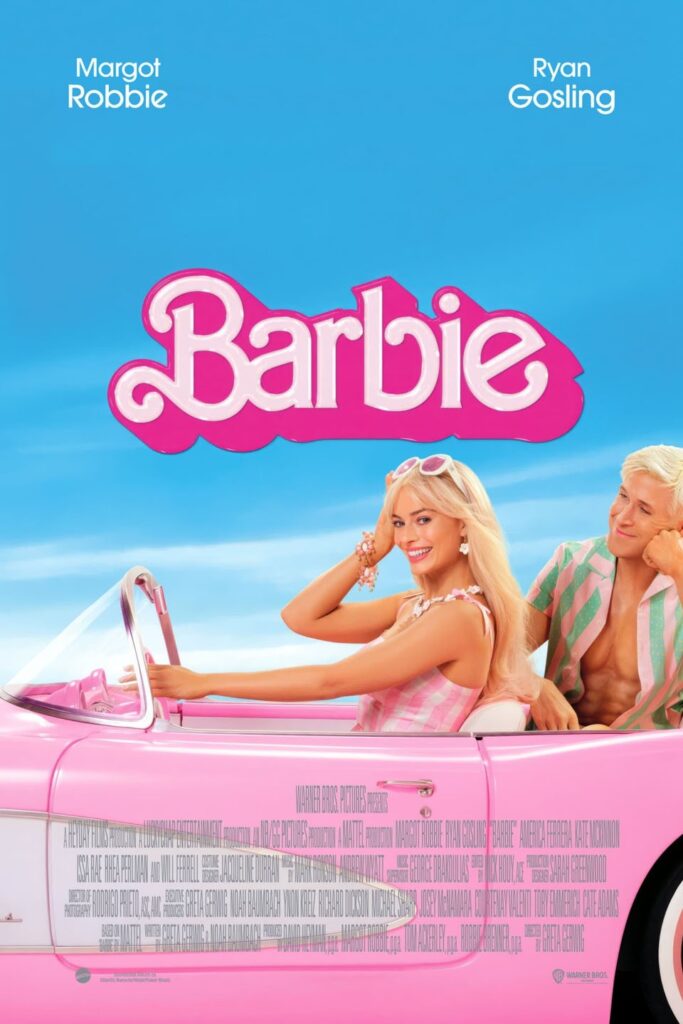
Discussion Leaders: Dr. Mary M. Dalton and Alex Klein, MFA
With astonishing wit and insight, the blockbuster film Barbie, directed by Greta Gerwig, critiques gender stereotypes in an unconventional coming of age film that also explores what it means to be human.
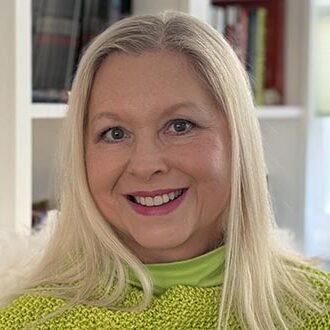
Mary M. Dalton teaches critical media studies courses in the Department of Communication.
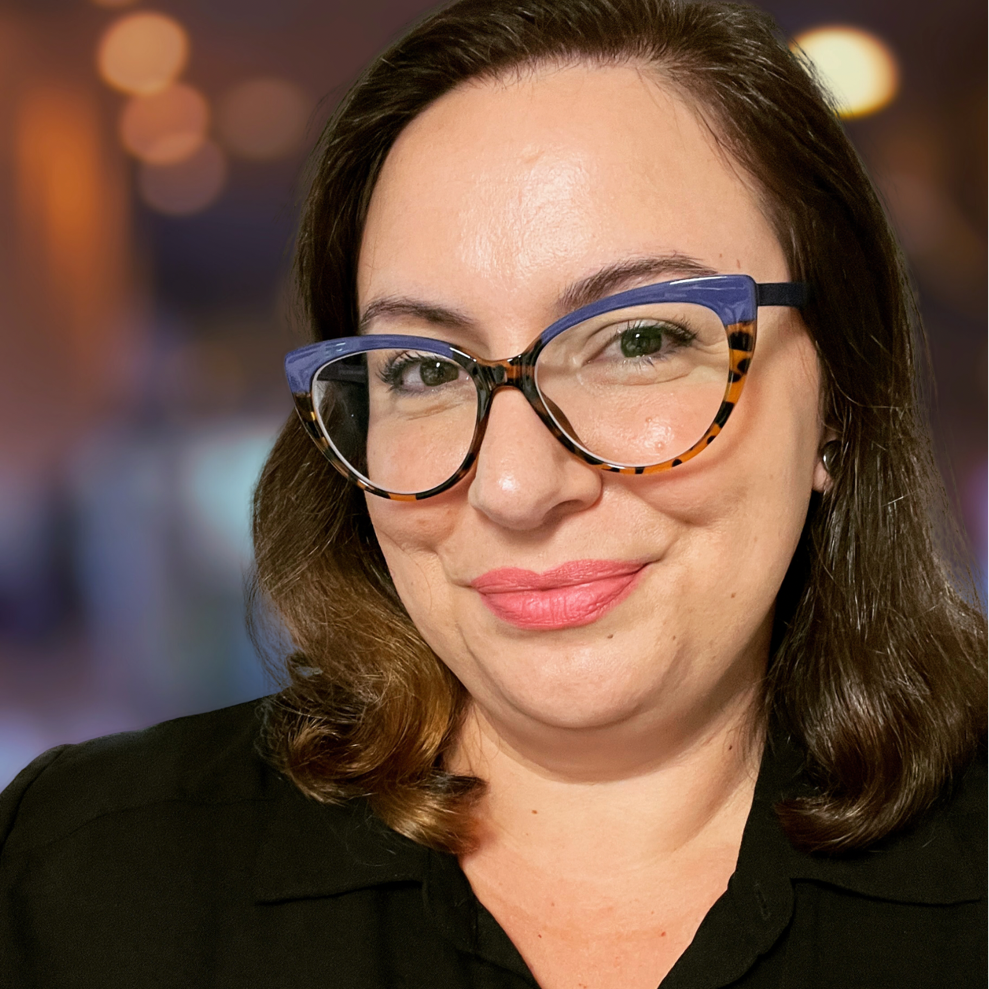
Alex Klein, a documentary filmmaker, teaches media production and media studies in the Department of Communication.
Discussion Leader: Dr. Nisrine Rahal
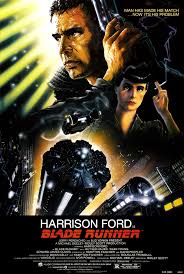
This discussion uses Blade Runner to explore the ethics of AI, labor, and government. Set in a dystopian world, the film centers on a police officer who attempts to track down rebellious replicants (robots who were created as slave laborers). The film makes us question the supporters of artificial intelligence and what it means to be human. Should the viewer empathize with replicants? What does humanity mean? Students will also examine what it means to learn, teach, consume, and construct community in the age of AI.The proposed media relates to the theme of what it means to participate in a modern democracy, a classroom, and what it means to be human.
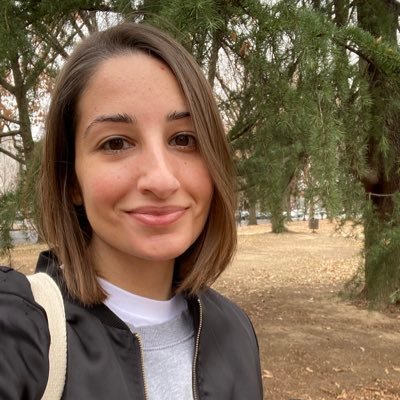
I am a historian of Modern Germany and Europe. My research examines the practices of civil society and democracy through the history of education, revolution, protest, and emotions in German speaking Europe. My current book project, A Garden for the Future and a Garden of Destruction: The Nineteenth Century German Kindergarten Movement and the Politics of Early Children’s Education, examines how the early children’s educational institute was mobilized as an alternative space of politics and power. I trace how individuals and communities founded kindergartens from which new concepts and languages of protest and power were articulated, particularly from those that were barred from traditional means of political negotiation against the forces of state and religious authorities. While working on this project, I have published on the emotions that mobilize protest, particularly hope and love. Outside of research and teaching, I love exploring new music, niche fun facts, and delicious coffee and treats.
Discussion Leader: Dr. Michael Shuman
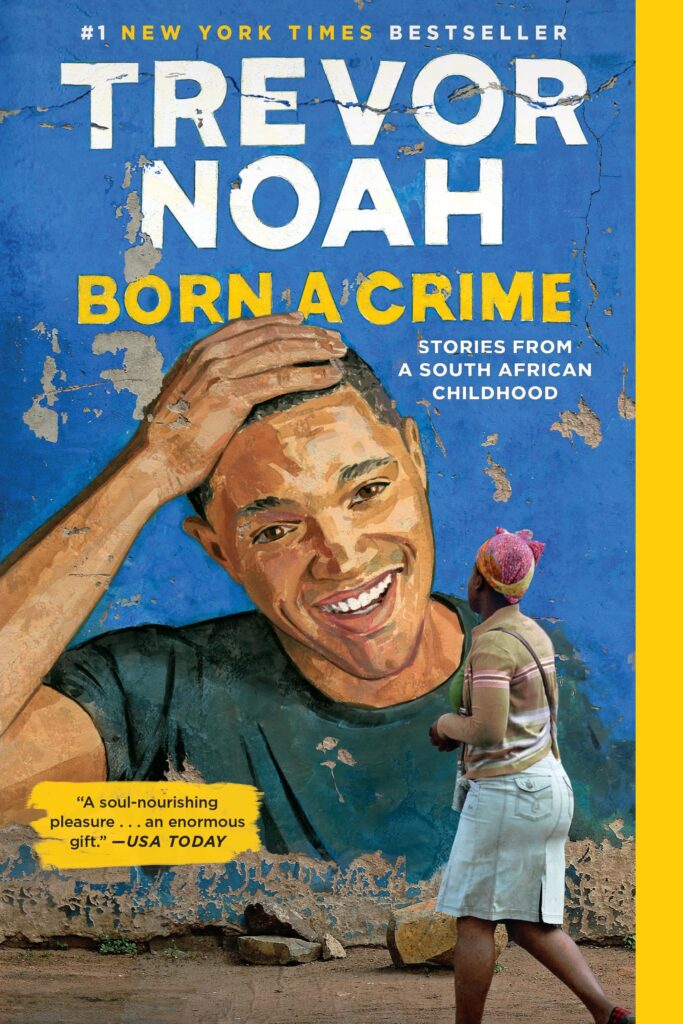
From apartheid South Africa to host of the Daily Show, Trevor Noah’s fascinating journey from his “criminal” birth to his celebrity adulthood is illustrated through a series of personal essays that are deeply moving, terribly unsettling, yet absolutely hilarious. Noah is a gifted storyteller, and his ability to recover from adversity is highlighted in each story. His experiences with racism, religion, politics, and family are both relatable and compelling, and I’m certain that we will have a lively and meaningful discussion about this year’s theme: A Brave New World.
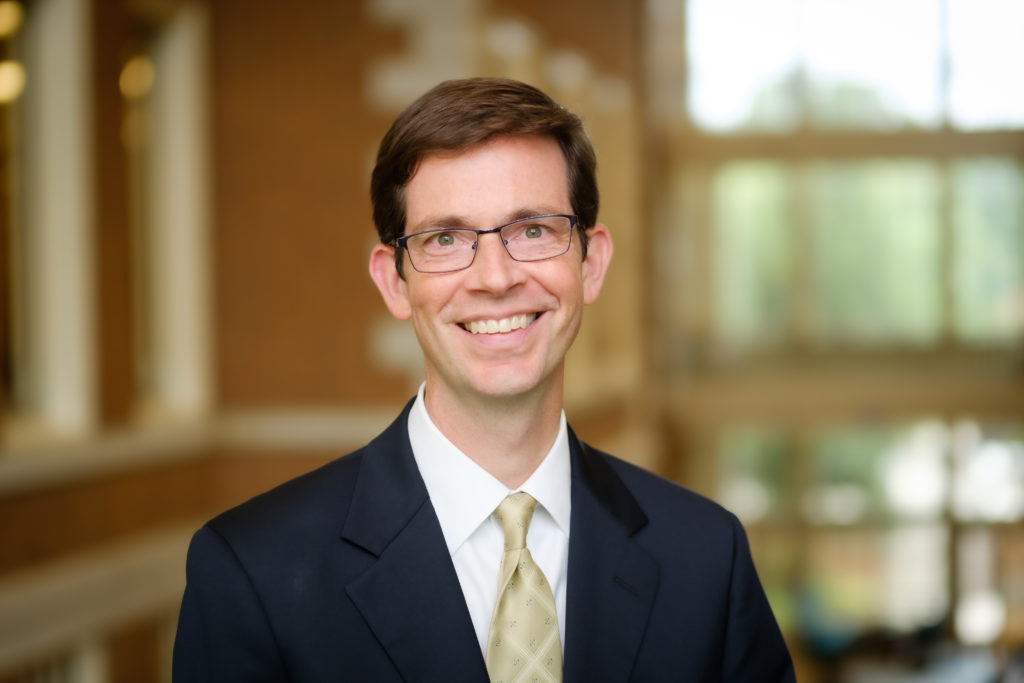
I am the Director of our Center for Learning, Access, and Student Success (CLASS), where we are committed to providing opportunities for all students to achieve academic success. The CLASS coordinates student success services, including peer tutoring and academic coaching, that new students find invaluable as they navigate their college experiences at WFU. In addition, CLASS coordinates academic accommodations for students with disabilities and works closely with faculty on inclusive teaching practices. Finally, I also teach a course in the Psychology department aimed at helping students develop the skills and approaches that are associated with success in college.
Discussion Leader: Dr. Robert Whaples
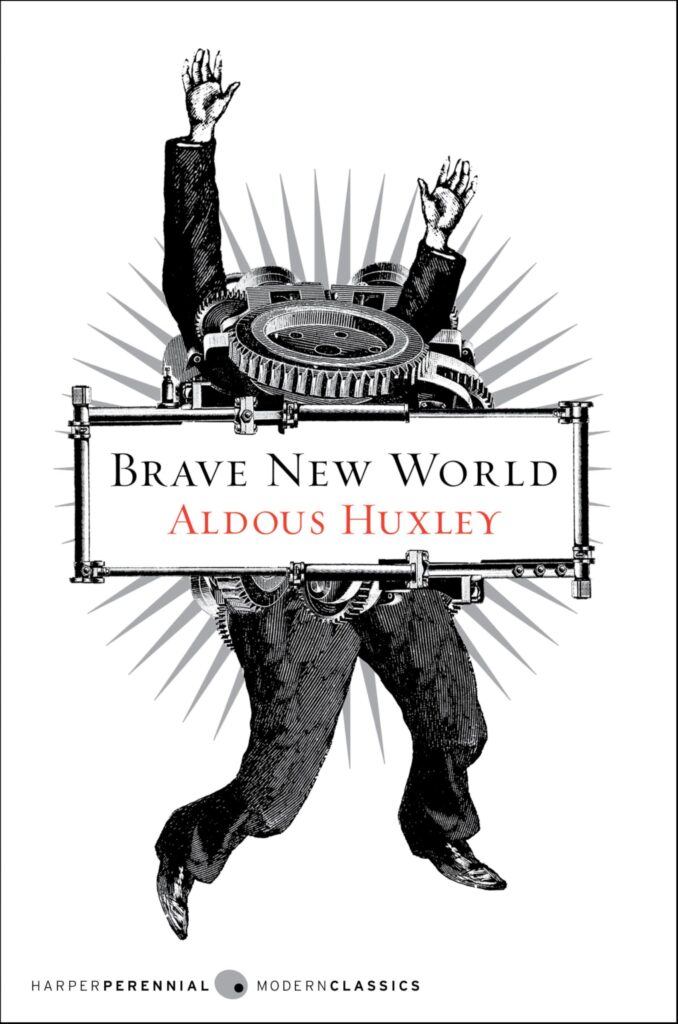
Huxley’s book warns about the consequences of running away from individual responsibility. It is especially timely. I have spoken with several students who recently read it and who were struck by its profound insights.
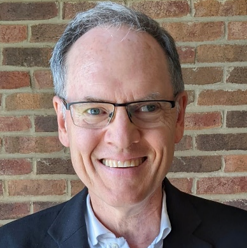
Robert Whaples is a professor of economics, co-editor of the book Future: Economic Peril or Prosperity, the long-time editor of The Independent Review: A Journal of Political Economy, and regularly teaches Current Economic Issues.
Discussion Leaders: Davita DesRoches and Jasmine Logan
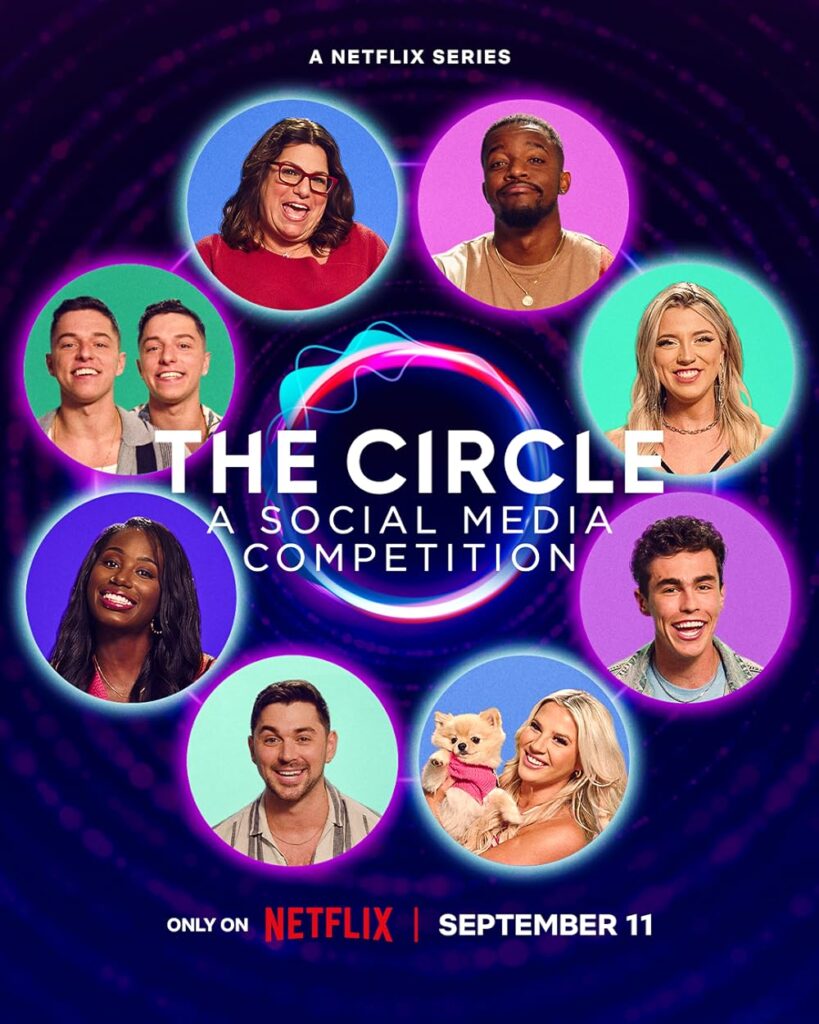
The Circle is a reality competition on Netflix where players create their own ‘social media’ identity to build relationships and gain influence to stay in the competition. The contestants play the game from isolated individual apartments without interacting in person. We believe that this piece mirrors the process of crafting your identity as a college student and navigating independence in new social settings. Although college students are able to interact in person, their social dynamics are affected by social media and other technology that can complicate their perception of their selves and their external social dynamics. As they embark into this brave new world of college, we hope that this piece will spark conversation about how young people can create healthy relationships and a healthy estimation of self in their lived reality.
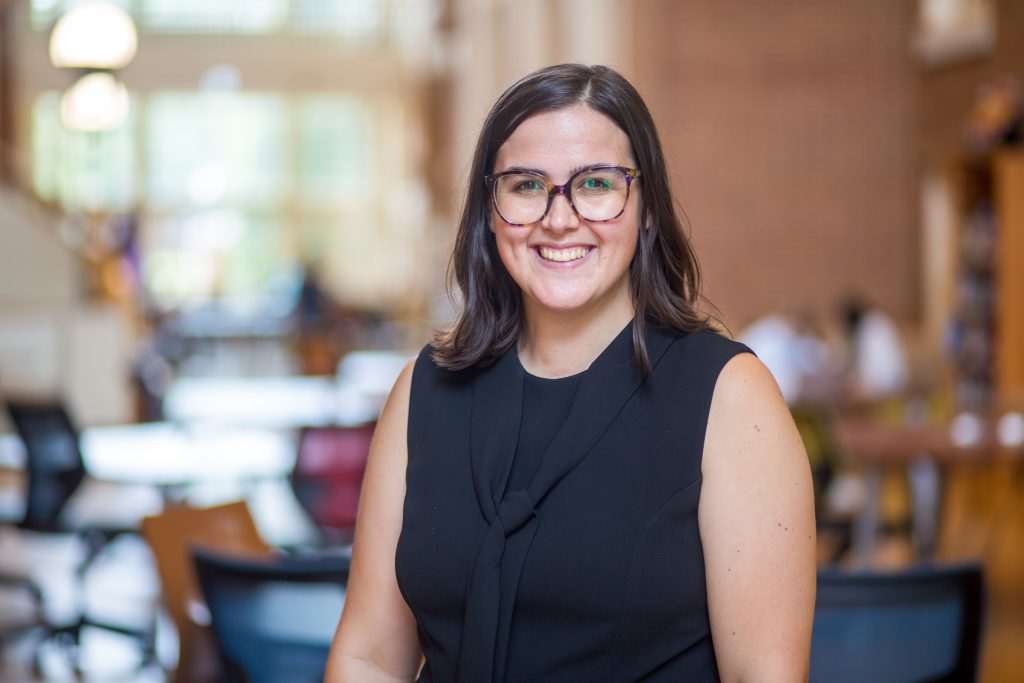
Davita DesRoches is the Alternative Media Specialist in the Center for Learning, Access, and Student Success at Wake Forest where she coordinates text in alternative format and assistive technology for students with disabilities to ensure their access to the full academic experience at Wake. She works one-on-one with Wake Forest students to help them build the skills to achieve their academic goals in college. Outside of the office, she enjoys taking care of her ever-growing houseplant collection, befriending every dog she meets, and reading widely.
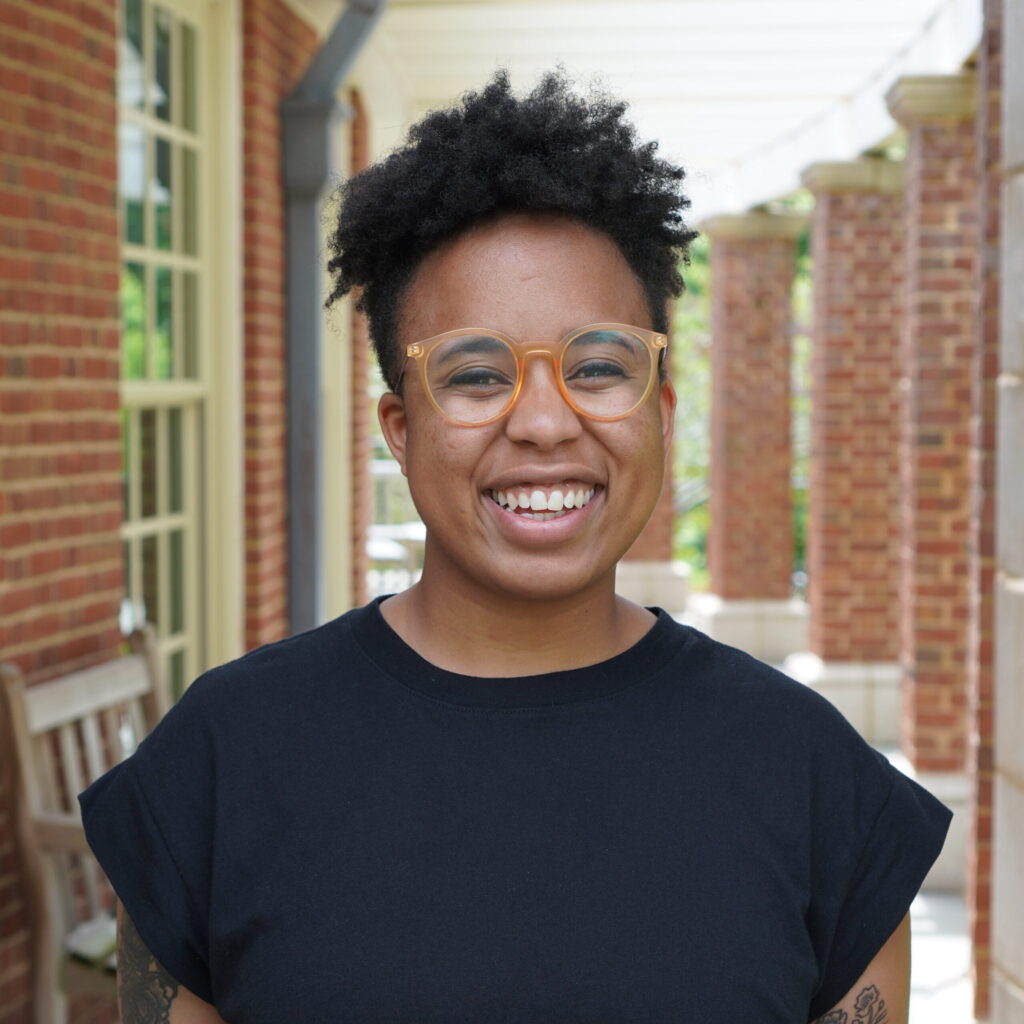
Jasmine Logan is the Assistant Director of Programming for Leadership and Character at Wake Forest University. As the Assistant Director of Programming, Jasmine oversees Leadership, Ethics and Purpose pre-orientation program, assists with the Leadership and Character Scholars program and facilitates discussion groups across campus. She earned her B.A. in Psychology from Azusa Pacific University and an M.Div. from Wake Forest University School of Divinity. Prior to joining the Program, she worked in student affairs, from admissions to residence life and housing. Her focus in student affairs has been on establishing and maintaining boundaries and creation of self-care plans.
Discussion Leader: Dr. Lynn Neal
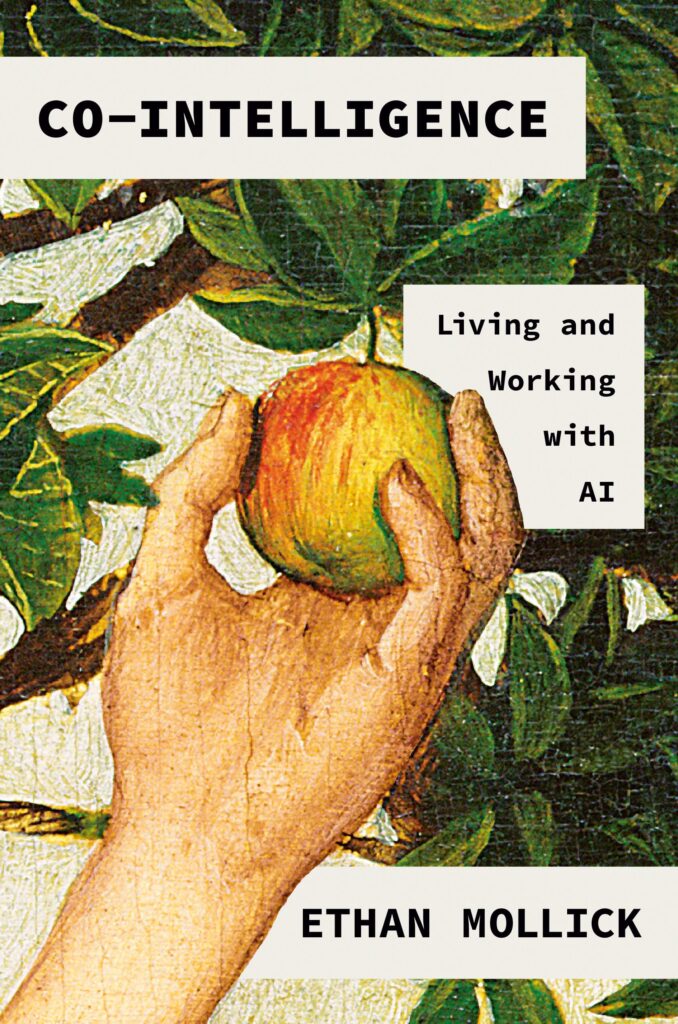
The book focuses on how AI is transforming our world and how we work.
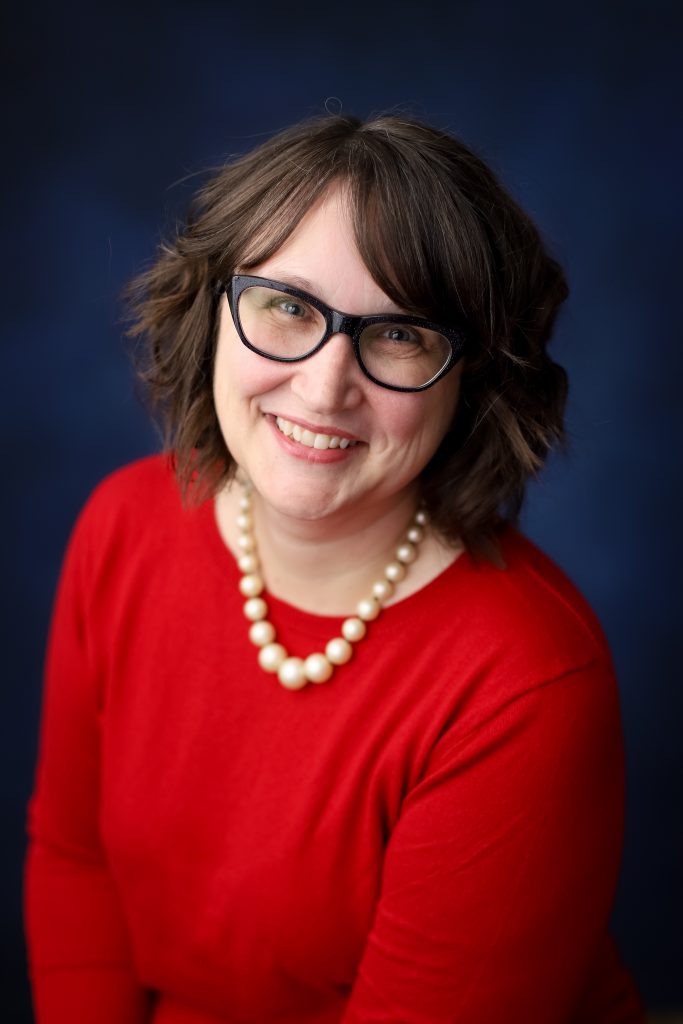
Dr. Lynn Neal, Professor of Religious Studies, teaches innovative courses on US religious history, including Religion and Popular Culture, Religious Sects & Cults, and Christianity and Fashion. An advocate for exploring emerging technologies in education, Dr. Neal is interested in AI–how it works and its impacts (positive and negative) on our learning.
Discussion Leader: Dr. Melissa Jenkins
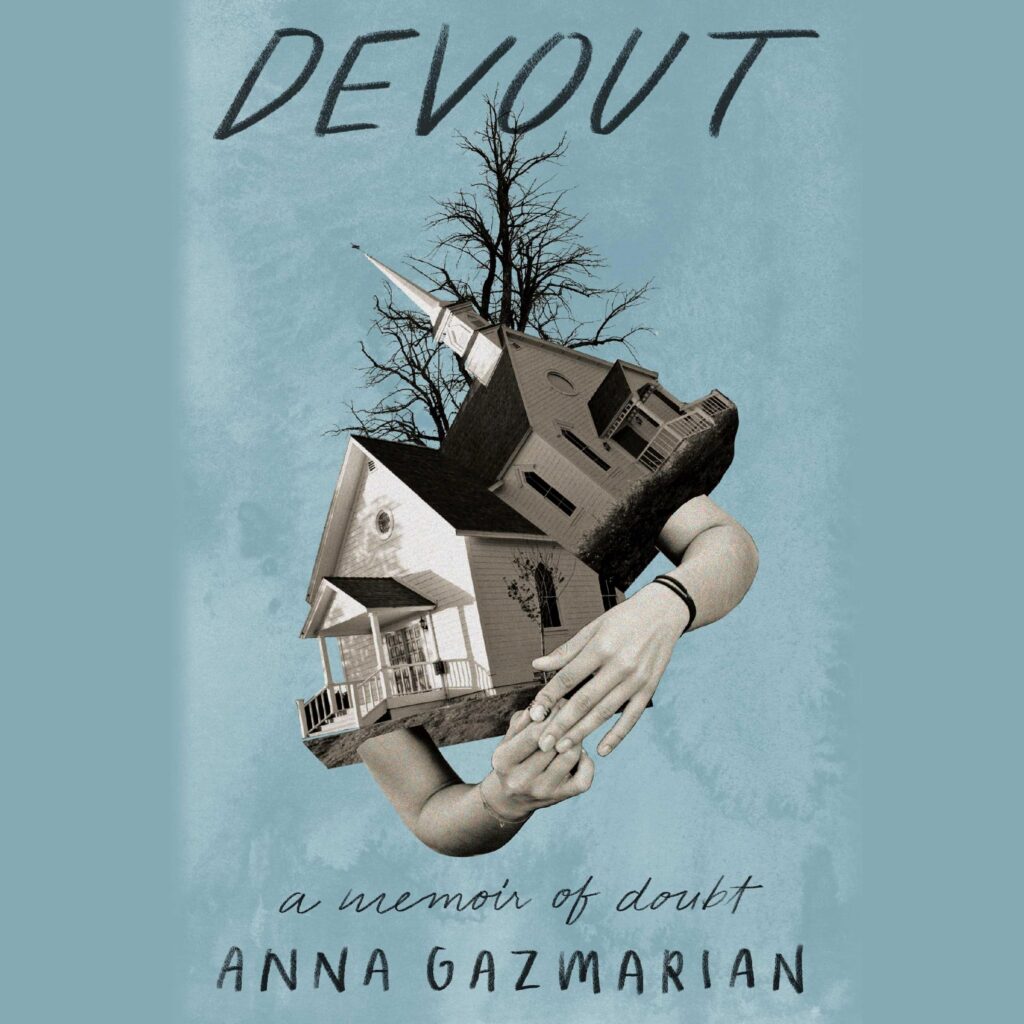
Anna Gazmarian may seem young to have written and published a memoir. However, the significant events of her teens and early twenties warrant examination. In her memoir, Gazmarian, a Winston Salem native, writes about her struggles to reconcile opposing influences: the optimism encouraged by her evangelical relatives, and the onset of treatment-resistant bipolar disorder. Devout: A Memoir of Doubt speaks to this year’s Project Wake theme, “Brave New World,” in its discussions of health and healing in times of transition. Gazmarian’s story will resonate with all who are navigating the complexities of identity while trying to plan for the challenges and opportunities of college life.
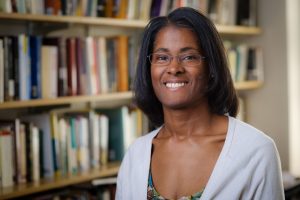
I teach in Wake Forest’s English department, and I serve as a faculty fellow in the first year residence halls. This fall, I’m teaching a First Year Seminar called “Faith and Doubt,” and a service-learning FYS called “Animals Make Us Human.” My home is brightened by my spouse, who I met in “The Pit” (Reynolda Dining Hall) 27 years ago, my daughters, ages 14 and 8, and a rotating array of foster animals. I look forward to meeting you!
Discussion Leader: Joy Gambill
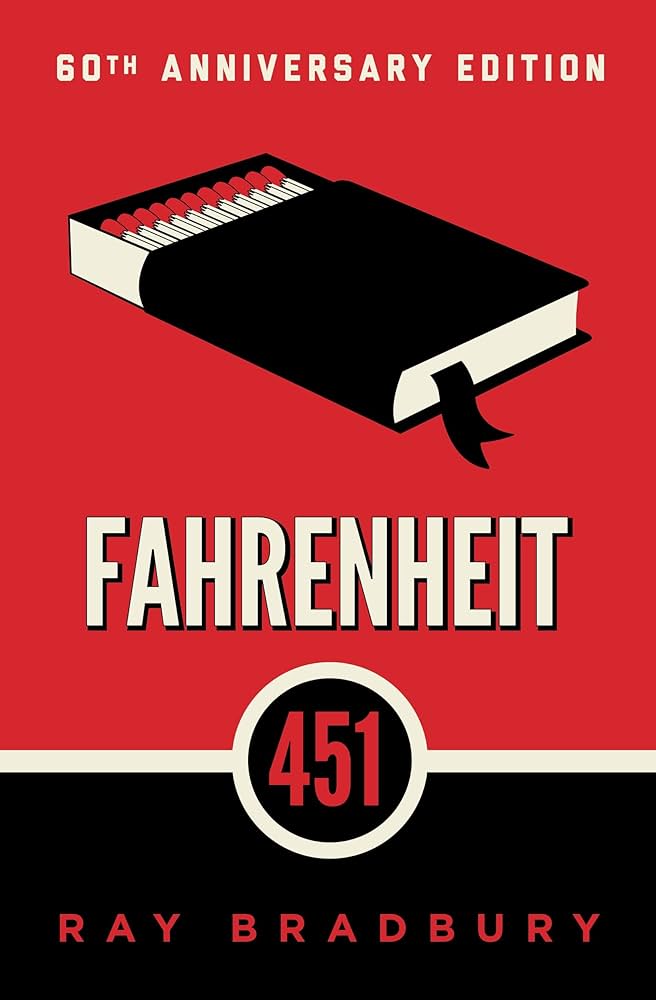
Ray Bradbury’s 1953 dystopian science fiction novel, Fahrenheit 451, was written in response to what Bradbury perceived as the evolving threats presented by America’s preoccupation with mass consumer culture. He was particularly concerned about the threat to independent thought and curiosity, and he saw reading as the cure. Bradbury introduces a future America where books are outlawed, and it is the job of firemen to find and burn books.
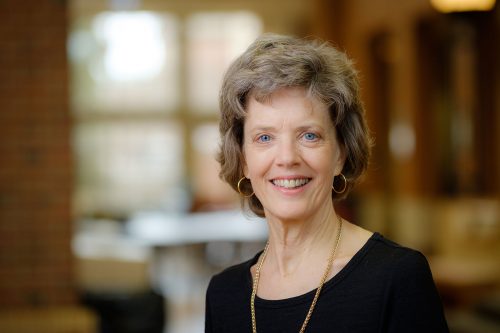
I am an instruction librarian in the Z. Smith Reynolds Library. I have been at Wake Forest for 19 years. I teach six sections of LIB100: Academic Research and Information Issues each semester. As a lover of books and all things related to academic libraries, I can’t wait to talk about this book with you!
Discussion Leaders: Deb Marke and Shell Sizemore
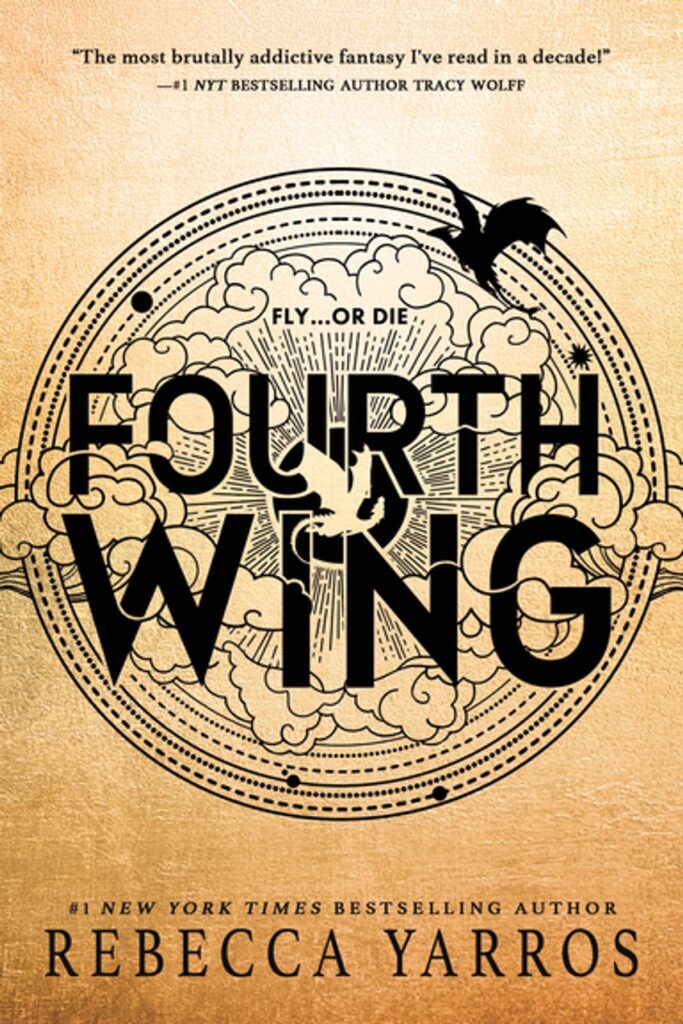
In Fourth Wing, Rebecca Yarros drops us into a world marked by volatile change, a hyper-controlled society, and an elite military academy where survival is far from guaranteed. As Violet Sorrengail enters Basgiath War College—a space that demands allegiance, strength, and conformity—she is thrust into her own “Brave New World,” one that mirrors many of the questions we face today. This transition echoes the moment many of us are in: entering new phases of life amid global uncertainty, questioning systems of truth and power, and renegotiating our place in society. Violet must navigate government control and military politics, coming to understand the structures that seek to define her role and suppress dissent. Her experience invites reflection on how power is wielded, who gets to decide what is real or right, and what forms of resistance are necessary or possible. Themes of consent and autonomy also rise starkly—especially in a pivotal scene where Xaden, despite his authority and relationship with Violet, defers to the dragons’ refusal to cross a boundary. This moment disrupts the power dynamic and underscores the importance of agency, communication, and mutual respect, resonating with modern conversations about boundaries, ethics, and the responsibilities that come with power. Equally compelling is Violet’s journey to claim her identity apart from her powerful mother and late father—mirroring the struggle many face in crafting a sense of self that’s not defined by inherited expectations. As a first-year student, she must decide who she is in a world that would rather tell her who to be. This internal reckoning is deeply human, echoing questions about belonging, growth, and the freedom to choose one’s own path. In a time when AI is reshaping our reality and democracy feels in flux, Fourth Wing gives us a lens to explore the tension between control and freedom, inherited identity and chosen destiny. It helps us imagine what it means to build community, lead with integrity, and survive—together—in a world on fire.
Starting college is a lot like entering Basgiath War College—new rules, new power structures, and a whole lot of figuring out who you are.
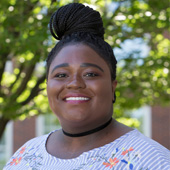
Join the Women’s Center and the Office of Civic and Community Engagement for a deep dive into Fourth Wing by Rebecca Yarros, a fantasy adventure packed with dragons, danger, and the kind of big questions we’re all asking:
What does it mean to find your voice in a world that wants to define you?
How do power, consent, and identity play out in systems built for survival, not fairness?
What’s real, and what’s just the story we’ve been told?
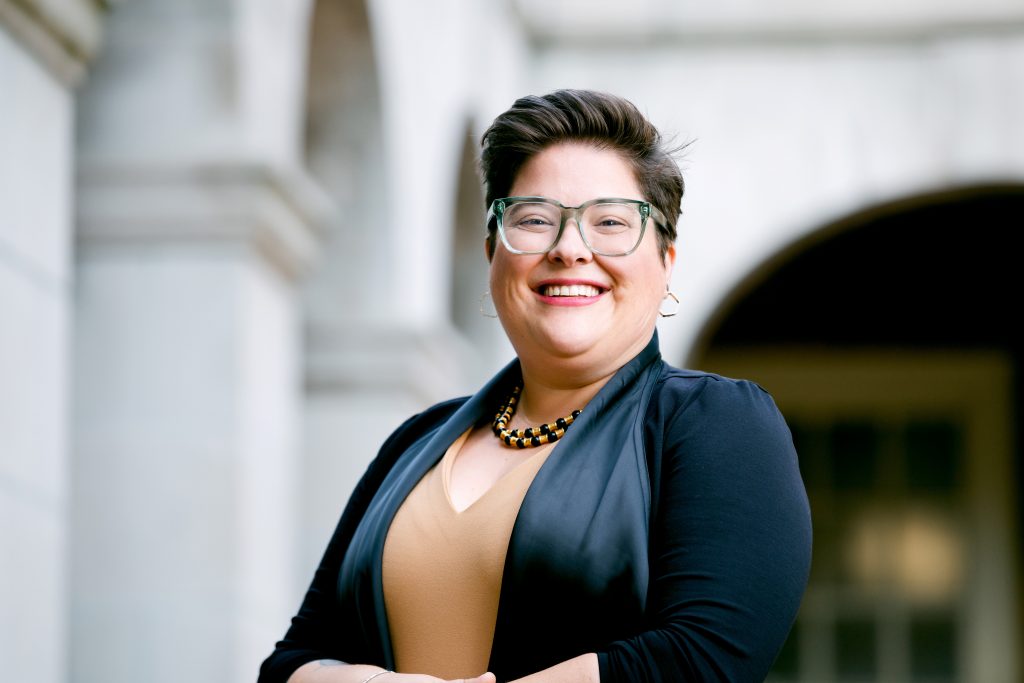
Whether you’ve already read it or are just fantasy-curious, this conversation is for anyone ready to explore life, leadership, and becoming in your own Brave New World.
Let’s talk truth, power, and how to write your next chapter—with or without wings.
Discussion Leader: Dr. Molly Knight
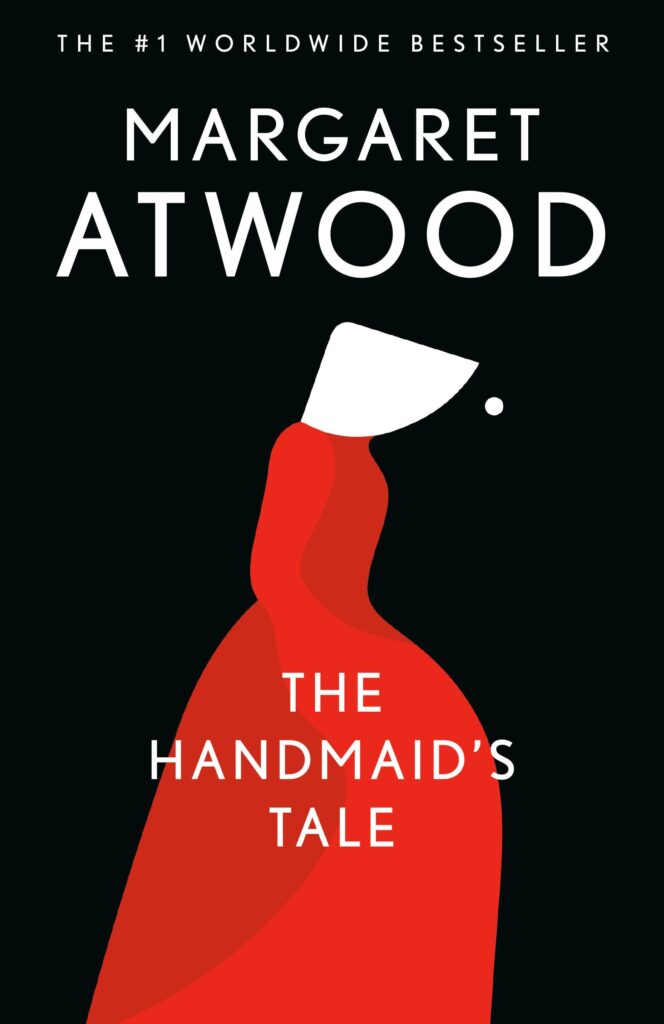
Atwood’s novel, by now a classic piece of dystopian speculative fiction, imagines an America in which the “brave new world” established by a new authoritarian government is a prison for women (and male dissenters). The protagonist must decide what risks she is willing to take to resist – and we as readers are compelled to reflect upon our own opportunities for resistance when the world changes in ways that threaten us and our loved ones. We will also have an opportunity to discuss the sequel to this book, The Testaments, and the television series based upon the book, if anyone in the group is familiar with them.
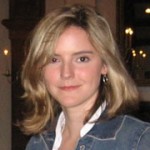
I am an Associate Teaching Professor of German here at Wake, where I’ve worked for 14 years. I specialize in 20th century German film and fiction.
Discussion Leaders: Meghan Webb and Jeffrey Faullin
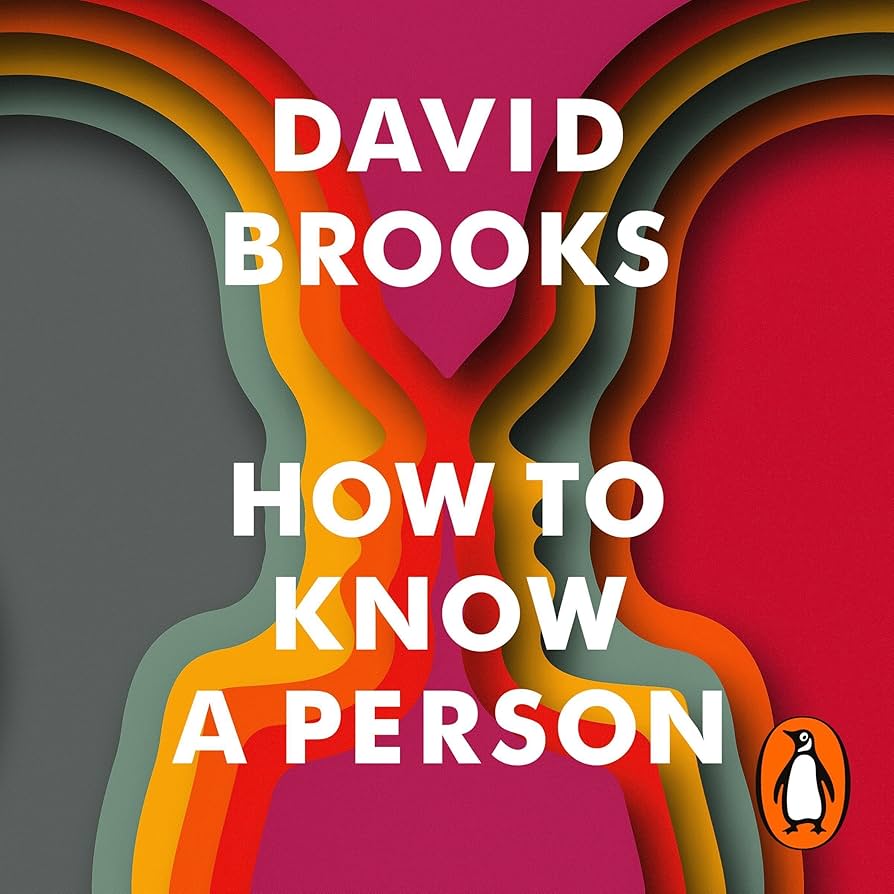
In How to Know a Person, David Brooks explores the art of truly seeing and understanding others in a world that often prizes speed, productivity, and digital connection over empathy and deep human relationships. Drawing from philosophy, psychology, and his own personal reflections, Brooks offers practical guidance on how to listen better, ask more meaningful questions, and develop the courage to engage with others more authentically. Brooks’ work provides a powerful framework for students about to enter college—a time when they will encounter a diverse array of people, ideas, and perspectives. In this new world of independence and discovery, bravery isn’t just about academic challenge or social exploration; it’s about having the courage to move beyond superficial interactions and truly know others. Brooks reminds us that understanding others isn’t just a personal virtue—it’s a foundational act of building a better, more humane world.
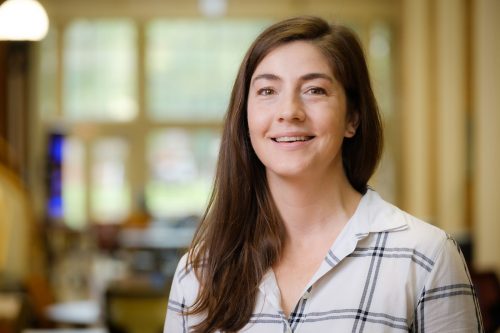
Meghan Webb: I am an Instruction and Outreach Librarian at ZSR Library. In addition to teaching LIB 100 and LIB 200 classes, I develop and lead library programs related to student engagement and instruction and work closely with the ZSR Library Ambassadors, our student leadership group.
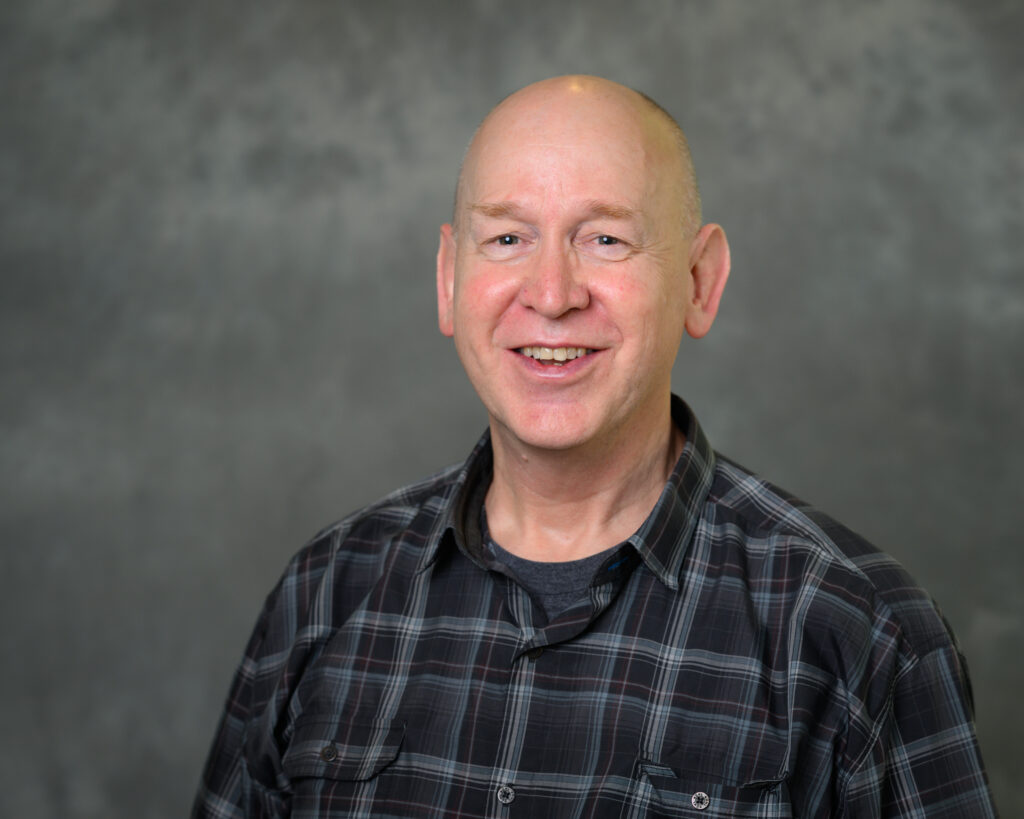
Professor Jeff Faullin is a Visiting Clinical Professor in the Department of Education. He teaches EDU 102L: Exploring School Communities and supervises elementary and secondary student teachers. Jeff holds an undergraduate degree in Ecology, Ethology & Evolution from the University of Illinois as well as a Masters degree in Science Education from Florida Institute of Technology. Teaching middle and high school science courses in Florida and North Carolina built his desire to impact school culture as an administrator. A Masters degree in Educational Leadership from UNC-G propelled him to a 15-year career as the principal at Brunson Elementary School in Winston-Salem, NC.
Discussion Leader: Dr. Christa Colyer
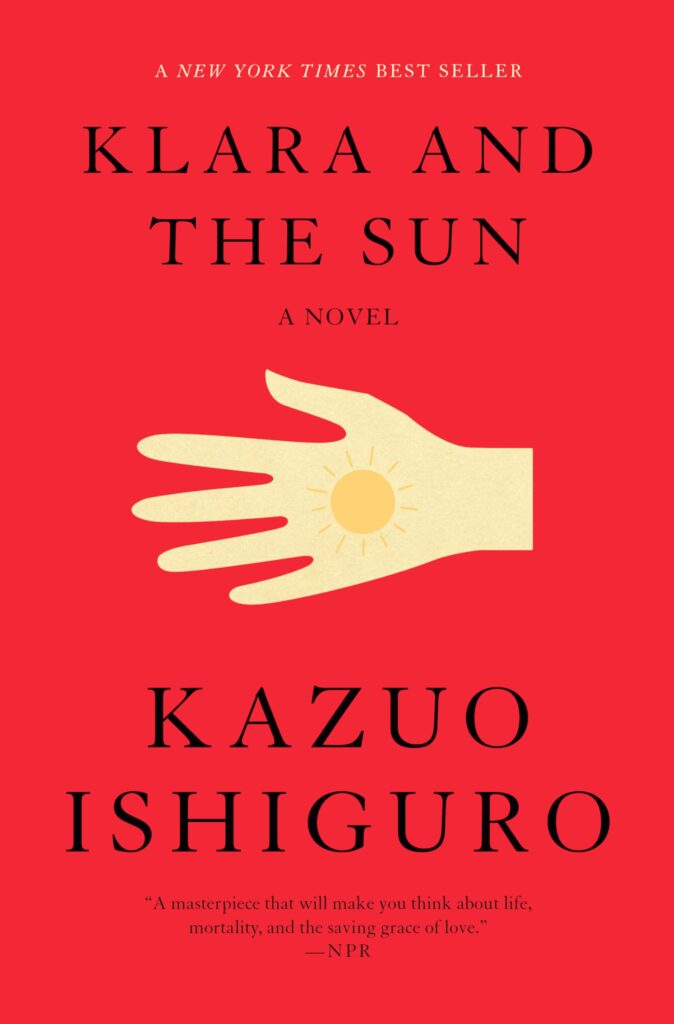
In the novel “Klara and the Sun,” Nobel prize winning author Kazuo Ishiguro challenges us to explore what it means to be truly human and what makes each of us worthy of love in a rapidly changing and increasingly divided society. The story takes place in the near future and is narrated by Klara, an “AF” (Artificial Friend) whose remarkable observational abilities help us to see the (“brave new”) world – and especially the potential impact of artificial intelligence, machine learning, climate change and genetic engineering – from many different perspectives. According to Klara herself, “I could see that people were using technology to try to improve themselves, but I wondered if they were losing something in the process. Maybe there was more to being human than just being smart or beautiful or strong.”
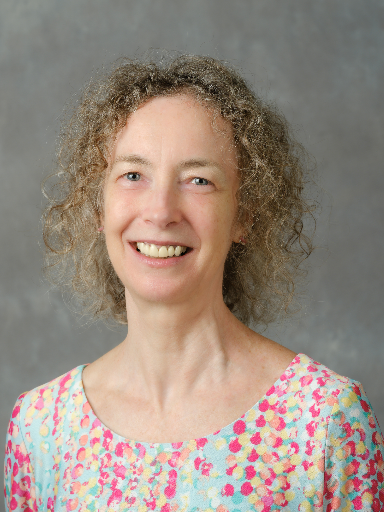
“Klara and the Sun” is one of my all-time favorite stories, and nothing makes me happier than to share it with others. I really hope you’ll join me for Project Wake so that, together, we can discuss questions about reality vs. perception, self vs. others, and humanity vs. technology as you transition to your new life at Wake. I’m Dr. Christa Colyer, and I have been a Professor of Chemistry at Wake for more than 25 years. Teaching first-year students (in CHM 111 and FYS 100) is just one of the roles I cherish, along with supporting study-abroad programs, mentoring analytical chemistry research projects, and serving as a lower division advisor.
Discussion Leader: Dr. Susan Rupp
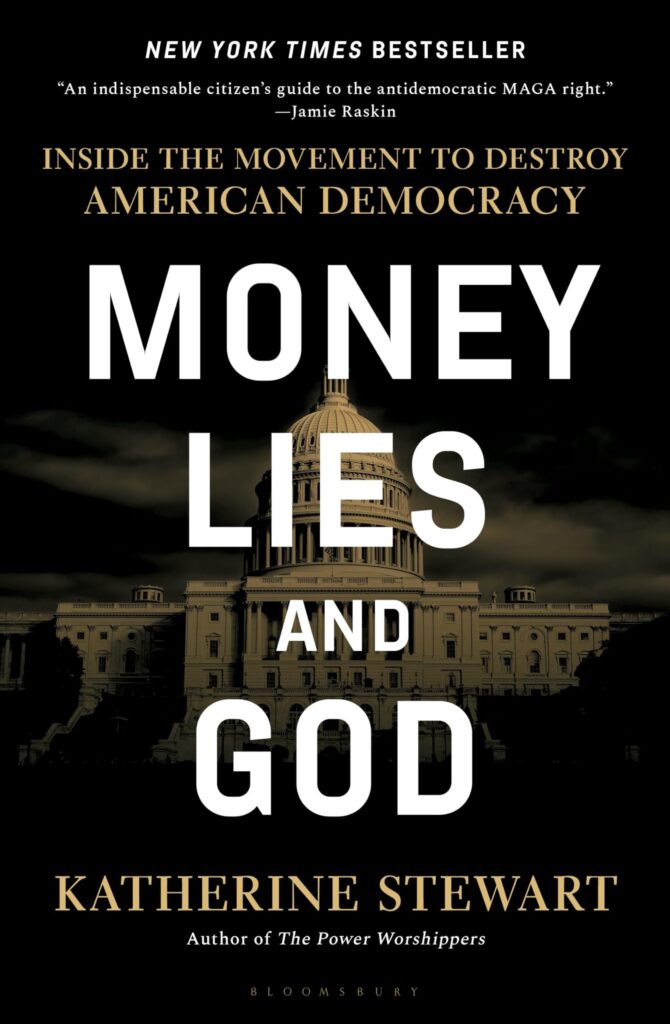
Stewart’s book examines the radical right and the threat it poses to American democracy. She warns of the danger of authoritarianism in the United States and explores how this danger might be countered.
I’ve been a member of Wake Forest’s history department for thirty years, teaching courses in Russian and Soviet history, the history of World War II, and the divisional course on modern Europe.
Discussion Leader: Justin-Ray Dutton
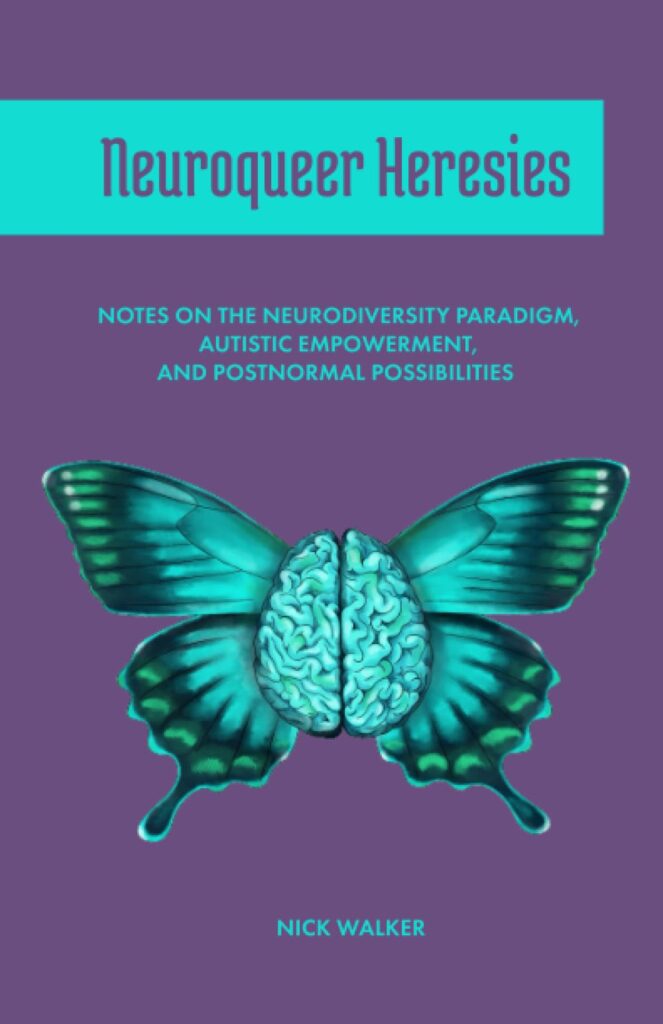
Active in online Autistic communities for over 20 years, Dr. Nick Walker created “Neuroqueer Heresies” in 2021. The book contains various short chapters of previously-published blog posts along with commentary, context, and additional new essays. Walker arranges the book in three sections: an introduction to the neurodiversity paradigm, a deeper dive into autistic empowerment, and an invitation to imagining postnormal possibilities. As Project Wake 2025 reflects on A Brave New World, this discussion group welcomes incoming students of all neurotypes and experiences to a shared space to reflect on how folks who consider themselves “non-typical” engage with global and local change.
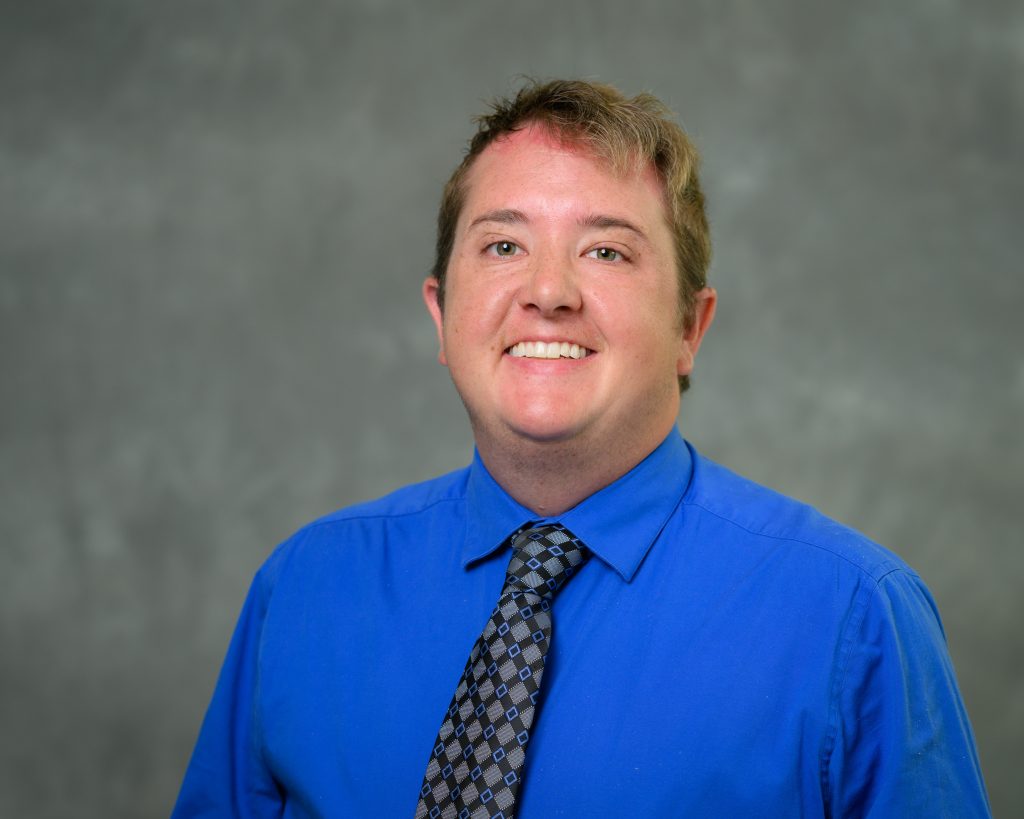
Justin-Ray is a neurodivergent, queer, rurally-rooted, first gen college graduate with research, training, and service interests that center on intersectionality and inviting folx to disrupt assumed norms. Justin-Ray works as the Academic Coach and Access Specialist in WFU’s Center for Learning, Access, and Student Success (CLASS) and regularly partners with student identity centers for discussions and community building. Outside of work, Justin-Ray enjoys being outside with his two dogs (Zari Imzadi and Oliver Queen), playing contemporary strategy board games, camping, and facilitating high adventure activities.
Discussion Leader: Dr. Qiong Zhang with student co-leader Connor Kerin ’28
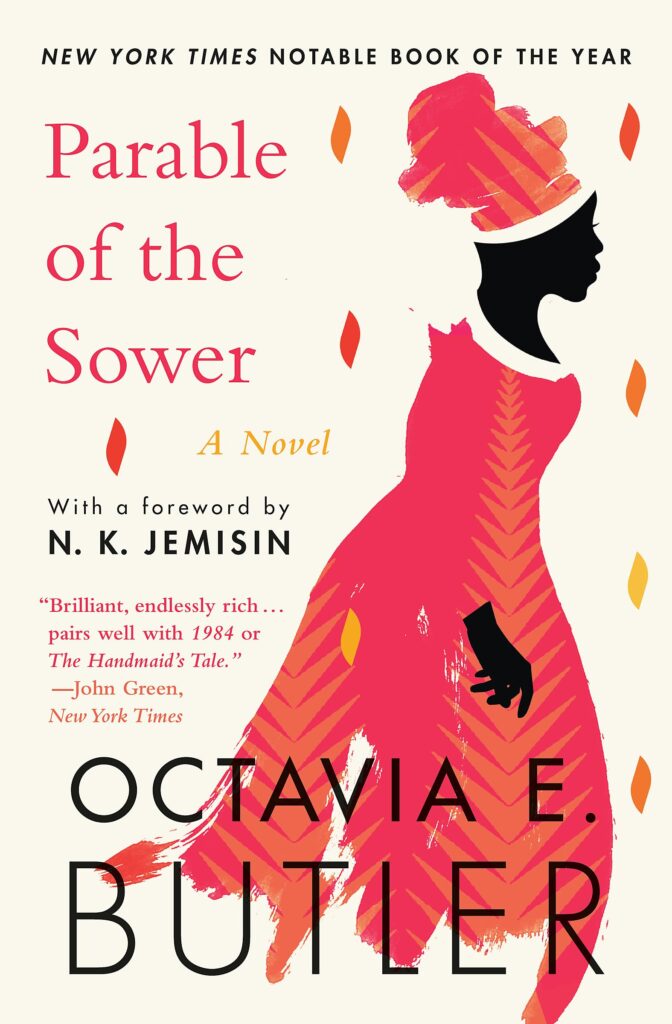
This dystopian classic tells the coming-of-age story of Lauren Olamina, a young woman with hyperempathy, as she struggles to survive in a post-apocalyptic America and lead her community through the chaos caused by climate change, government collapse, and widespread poverty and violence. Written over thirty years ago and set to begin in 2024, the novel is proving to be eerily prophetic. What are the key takeaways from this story that might help us confront the challenges of our own time? More specifically, what actions can—and should—we take to create positive change and prevent the kind of apocalypse envisioned in the novel? (Interested students may access an ebook or audio book edition of this book via the ZSR Library’s subscription following these links: https://ebookcentral.proquest.com/lib/wfu/detail.action?docID=1803491 (Ebook); https://wakeforest.overdrive.com/media/2902085 (Audio Book)
This discussion will be co-led by Dr. Qiong Zhang from the Department of History and Mr. Connor Kerin, a proud sophomore at Wake.
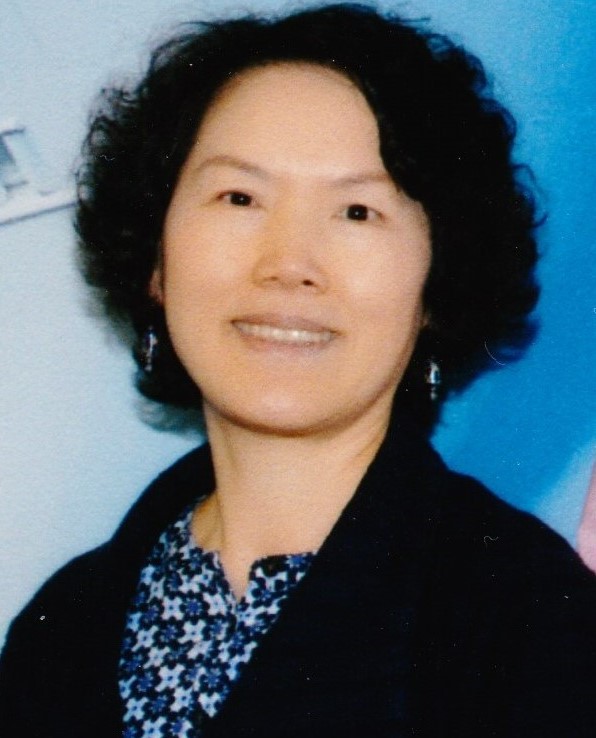
Greetings from Qiong Zhang! I am an associate professor of Chinese history. I teach various courses on Chinese history and a divisional on World Civilization to 1500. My research primarily focuses on Chinese intellectual and cultural history, the history of science, environmental history, and the cultural interactions between China and the West since the early modern era.
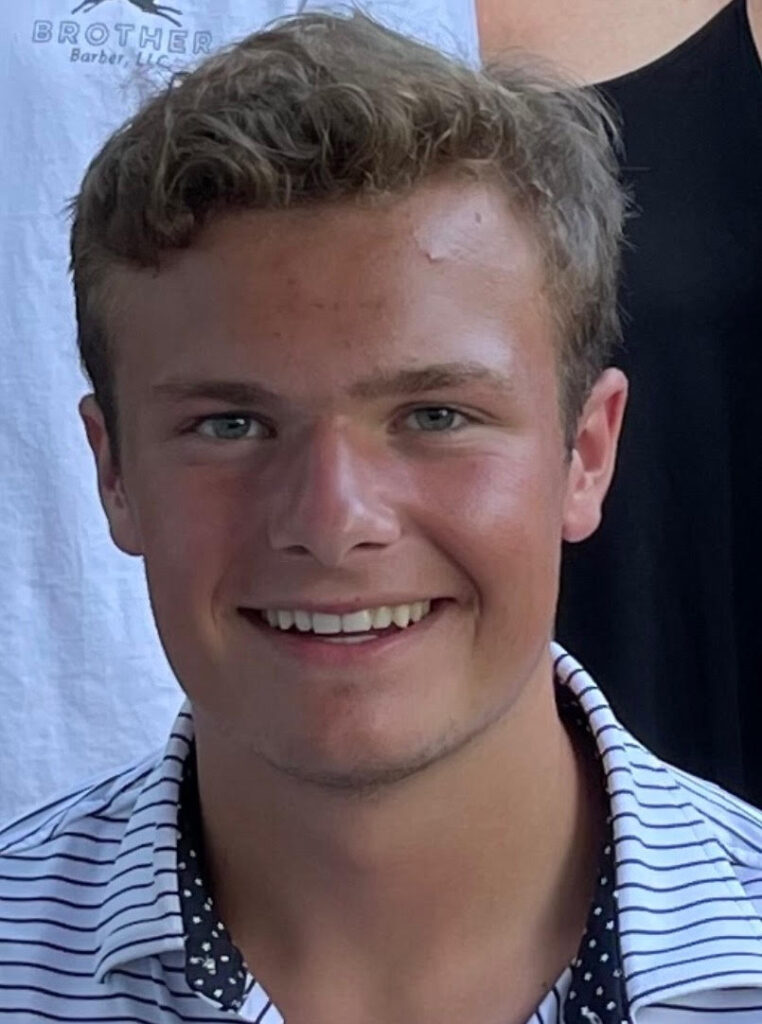
Hello! My name is Connor Kerin, and I am a Sophomore from Franklin Lakes, New Jersey. While I have not declared a major yet, I plan on going to law school and would like to pursue a career as a prosecutor. In my free time, I enjoy reading and cycling. I look forward to meeting everyone in August!
Discussion Leader: Dr. Matt Clifford
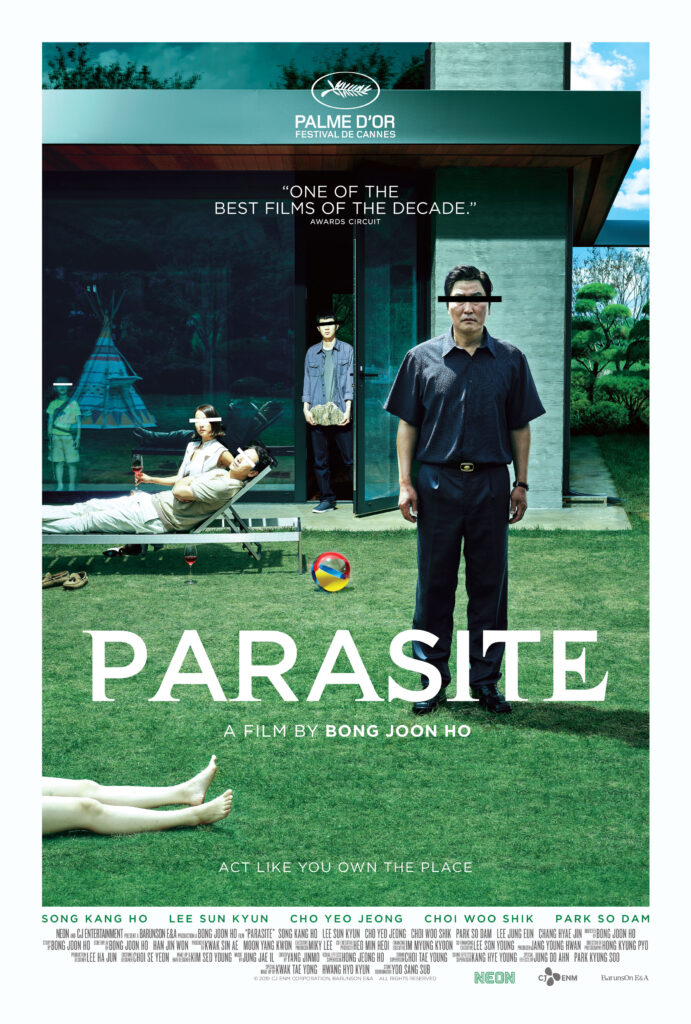
I’m excited to lead a discussion group on the thought-provoking film, Parasite! In this discussion, we’ll explore how Parasite offers sharp social commentary on class inequality, economic insecurity, and the complicated relationships between different social classes. Through dark comedy, thriller elements, and tragedy, the film delves into the desperation and moral dilemmas caused by economic disparities. Join me to reflect critically on these social structures and inequalities, and how they impact our understanding of modern citizenship.
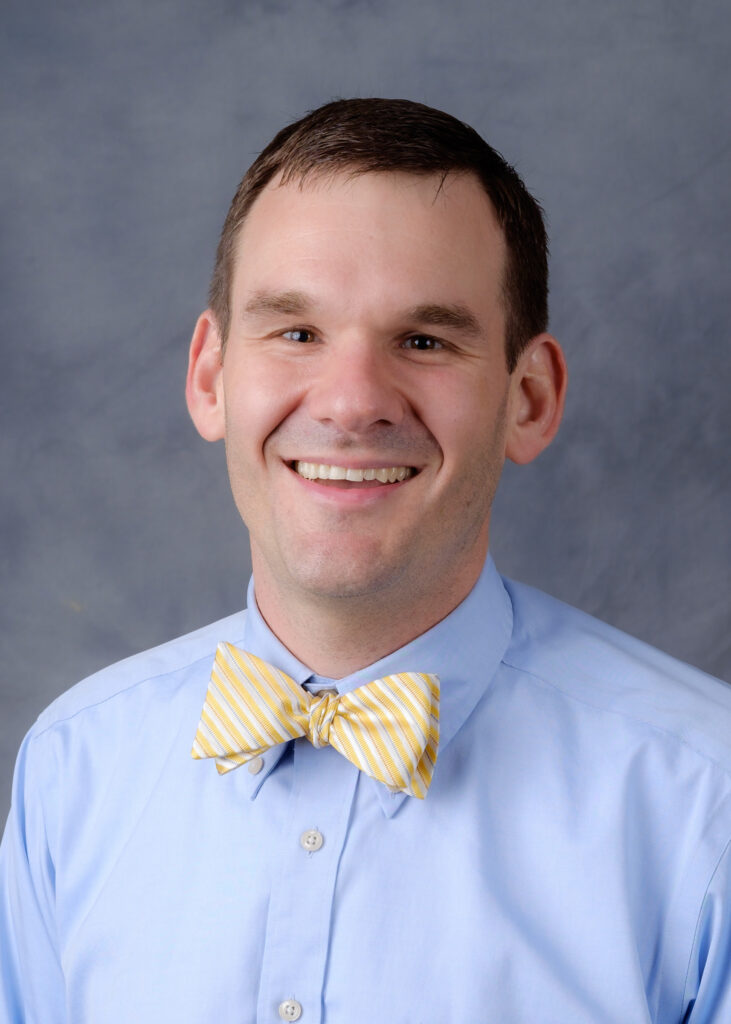
I’ve worked at Wake Forest for fifteen years and currently serve as Dean of Students. That doesn’t mean I’m the principal! I work closely with students, faculty, and staff to help make the Wake Forest student experience vibrant and enriching. Alongside colleagues across the University, I create programs that support learning, leadership development, and student wellbeing. I love attending Wake Forest sporting events with my family, having lunch with students at the Pit, and participating in campus traditions (Lovefeast is wonderful!). You may see me on campus with my golden retriever, Cash (he loves people!).
Discussion Leader: Dr. Franziska Tsufim
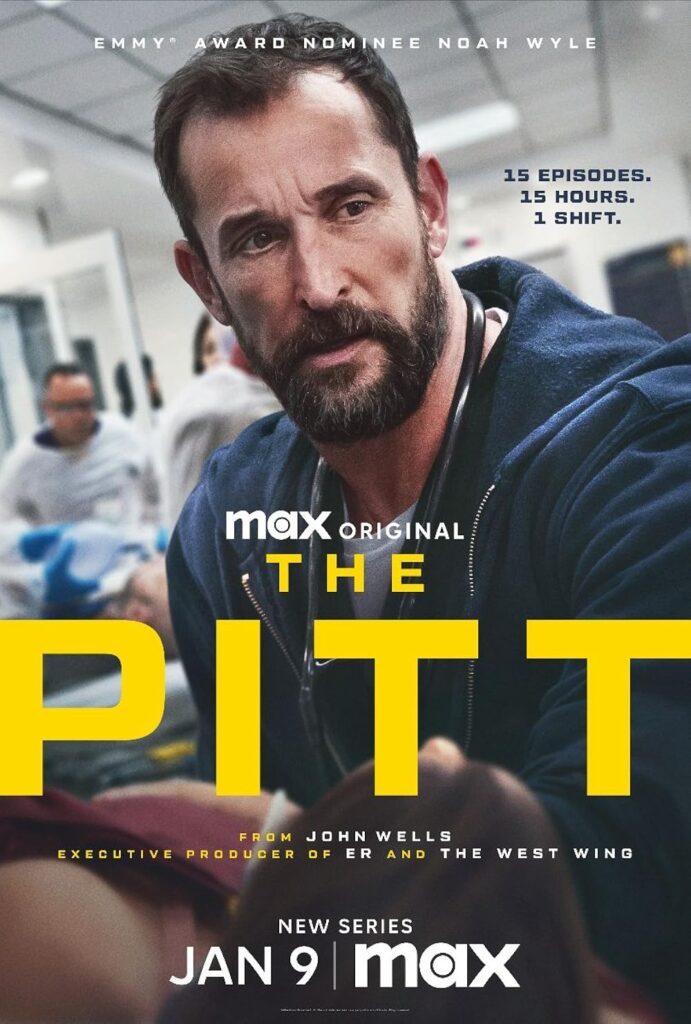
Have you heard about The Pitt? No, not the Pit on campus. We’re talking about HBO’s The Pitt, a new medical drama that has been the talk of the town, since its release in January. Medical professionals and film critics alike have praised the show for its medical realism. But The Pitt does more than get the medical jargon right. It portrays work in the ER for what it is: Sisyphean labor in a system whose material and human resources have been stretched beyond their limits. The show explores all of this in real time as it unfolds across 15 episodes each covering one hour of one single ER shift. The viewer stays in the ER all this time, relieved neither by time lapses nor flashbacks. One case ends just for another to follow straight on its heels. No wonder, then, that, when watching The Pitt, one cannot escape a strange sense of breathlessness, almost exhaustion. This is not a show you want to binge! Needless to say, The Pitt is not your ordinary medical drama: it reflects what it means to live in this brave new post-COVID world scarred by medical, social, and political crises. And deep at the heart of it? Three new doctors, or interns, who are struggling to stay above water on their first day in the ER.
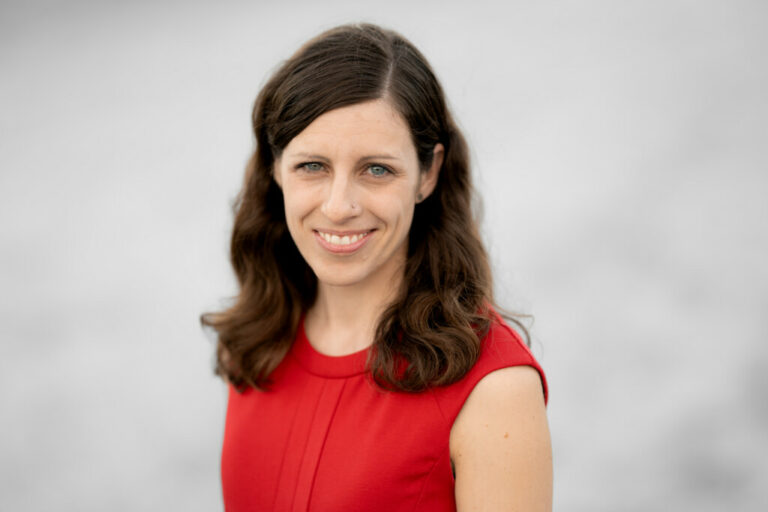
I am an Assistant Teaching Professor in the Writing Program where I teach both first-year writing (my course theme this semester is “Do-It-Yourself?!: Rhetorics of Making, Hacking, and Creating”) and science communication. I admit it: I occasionally enjoy binging Netflix or HBO shows (think Friends and Bridgerton), but when I tried it with The Pitt this spring…let’s just say it didn’t go too well. It is exactly this experience that makes me want to watch, respond to, and dissect this show with you all. So, what is it about The Pitt that is so nightmare-inducing (spoiler alert: I think it has something to do with how accurately it captures our “brave new world”), and why should we still watch it (carefully dosed).
Discussion Leader: Professor Matthew Phillips
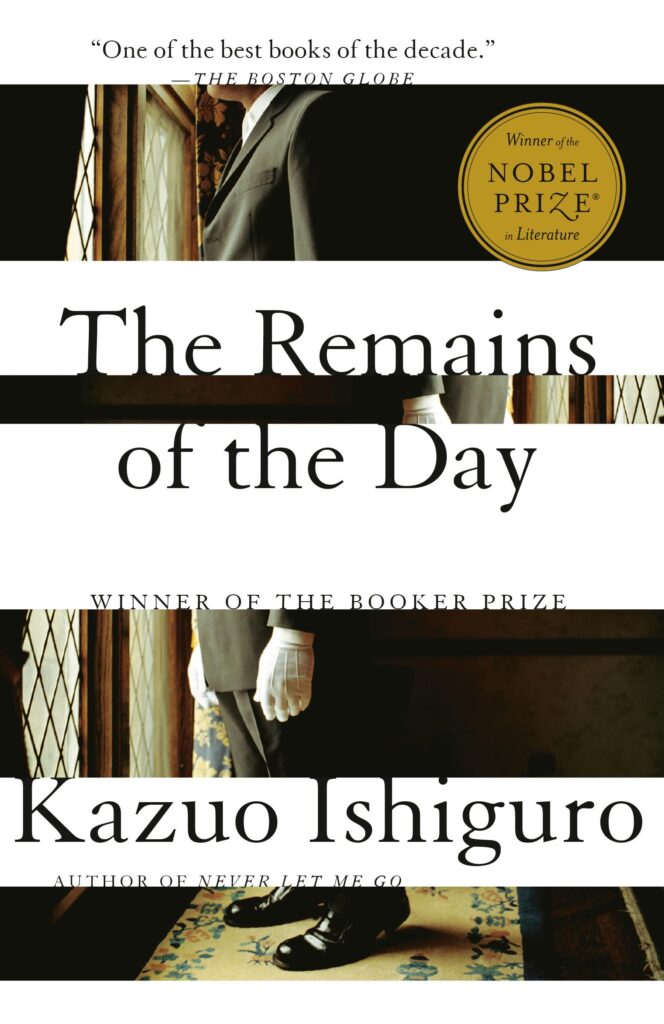
Ishiguro’s best-known work describes the way a professional butler finds himself at the intersection of social eras and wrestles with the ways in which his earnest professional service might have been used for nefarious ends. It’s a wonderful context to discuss what it means to identify with work, how to balance obligations, and how to carry responsibility for stewardship of our communities.
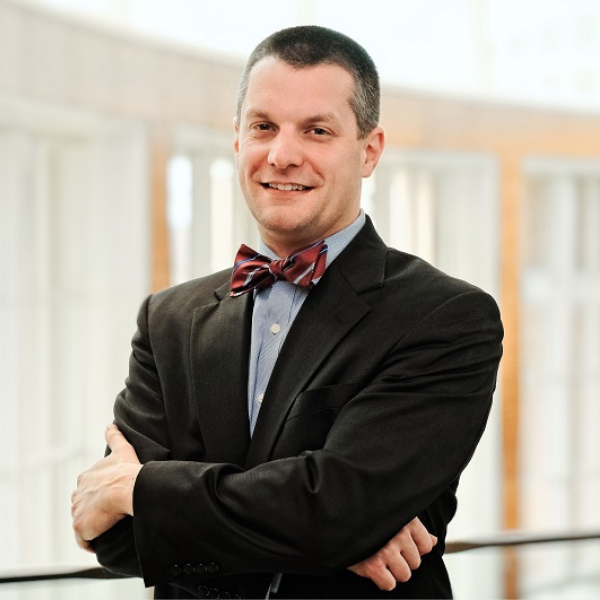
Prof. Phillips is teaching professor of business law & ethics and previously served as associate provost. He is a graduate of Wake Forest (BA, JD) and Duke (MDiv), and has done additional work in leadership and strategy with the U.S. Air Force. He is admitted to practice law in federal and state courts of North Carolina, the U.S. Tax Court, and the U.S. Supreme Court. He received multiple awards for teaching and has lectured on business ethics across the U.S. and in Europe.
Discussion Leader: Bethany Leggett
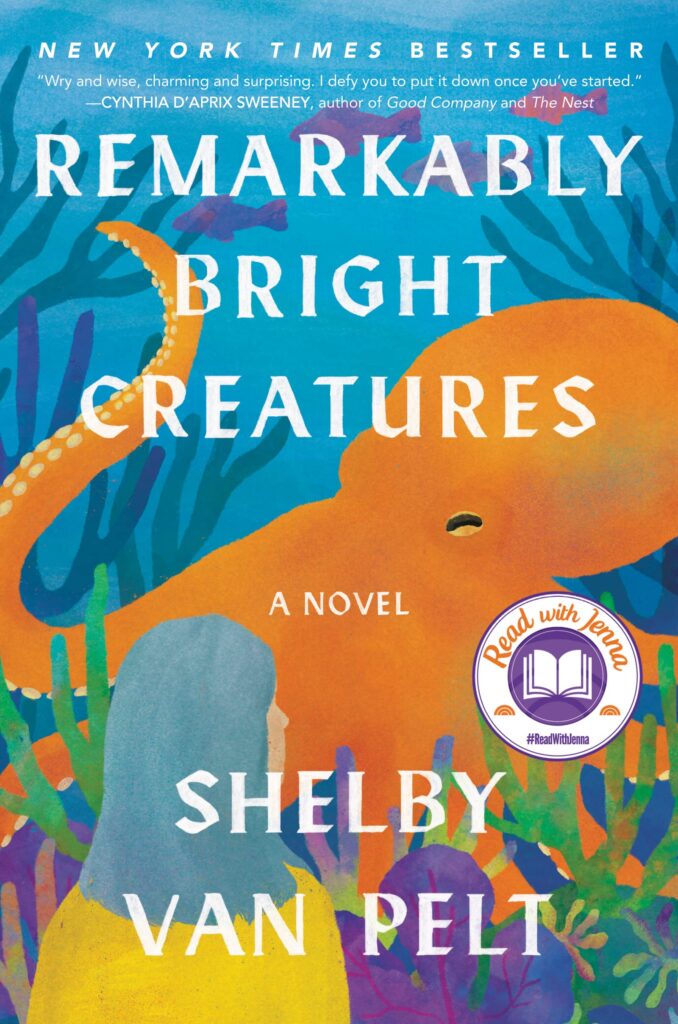
Such a charming novel that explores friendship, reckoning, and hope, tracing a widow’s unlikely connection with a giant Pacific octopus. Wisdom is not just a human trait, and this book will change how one views the natural world, highlighting all creatures’ capacities for empathy and learning. Readers open ourselves to our own brave new worlds, where we can achieve harmony and healing through unlikely friendships.
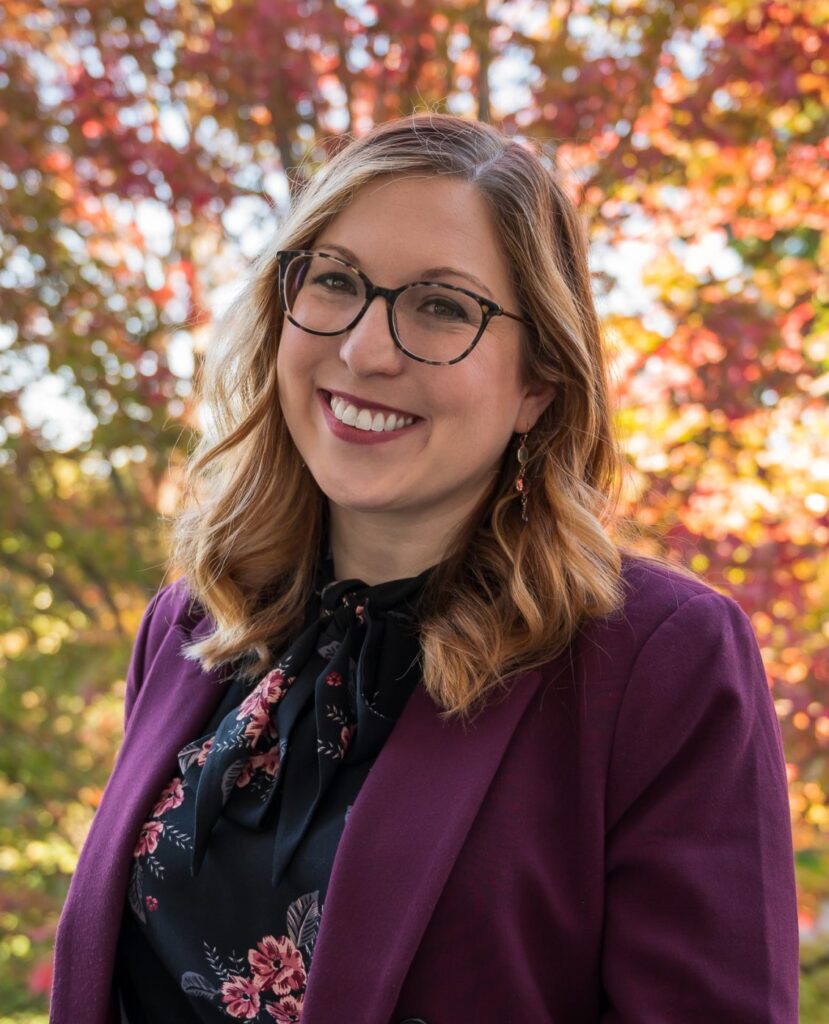
My approach to journalism focuses on the craft of storytelling, from selecting themes for feature articles to finding a way to humanize a global topic with a local angle. My career has included editing and writing award-winning newspaper and magazine stories; managing numerous freelance writers and photographers; overseeing photoshoots and art direction; and much more.
I currently work as Director of Strategic Communications and Marketing at Wake Forest University, where I further the University’s Pro Humanitate spirit and academic mission.
Discussion Leader: Dr. John Welsh
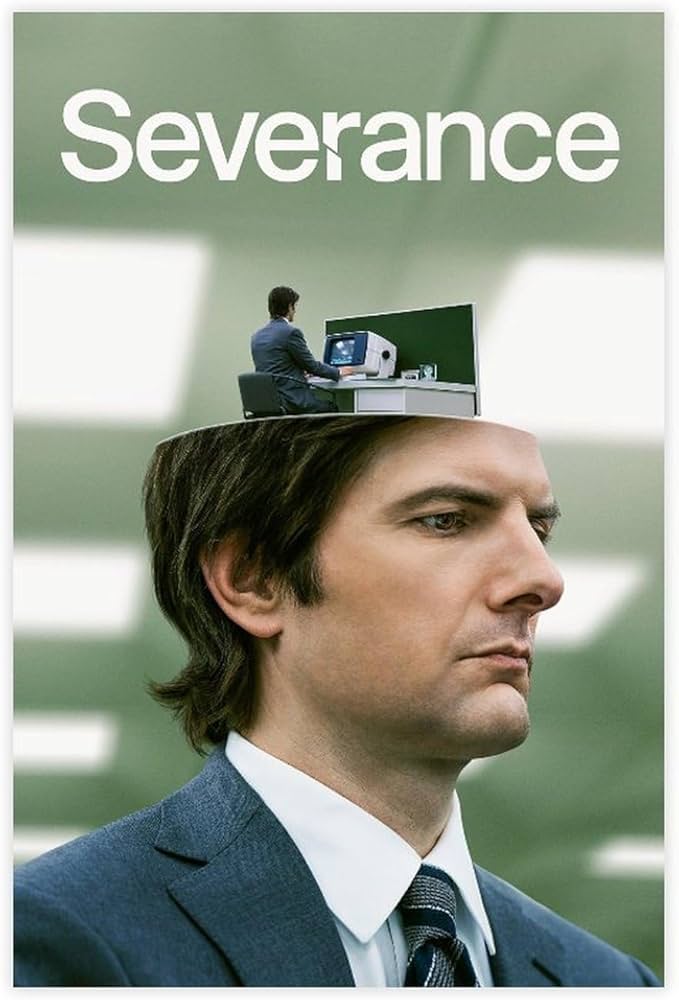
Severance imagines a world in which employees can choose to undergo a surgical procedure that splits their memories between work and personal life, creating two separate selves: an “innie,” who exists only within the four walls of the workplace, and an “outie,” who experiences life only outside of it. The outie continues to exist solely during non-working hours, entirely unaware of what happens at work. Episode 2 offers the most effective introduction to the series, providing more exposition than the pilot and immersing the viewer in the now-familiar atmosphere of Lumon Industries—a workplace defined by an unsettling blend of corporate cheer and quiet dread. The world of Severance serves as a powerful meditation on the relationship between time, identity, and memory, as well as a poignant critique of contemporary work culture, which demands that we—willingly or not—sacrifice parts of our individual humanity on the altar of progress, productivity, and the bright, shiny, new.
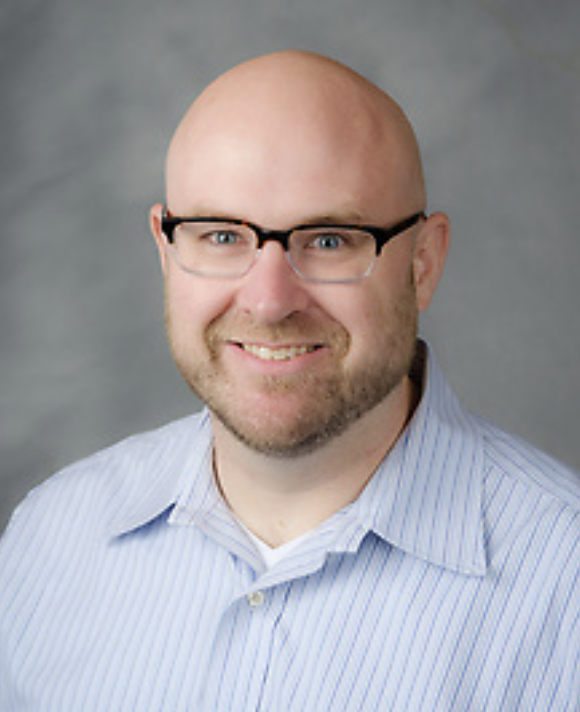
John Welsh is an Assistant Teaching Professor of Italian at Wake Forest University, where he teaches language, literature, and film. He holds a Ph.D. from Harvard, with research focusing on ethics and representation in Italian literature and cinema. With a background in both the humanities and media studies, John brings an interdisciplinary lens to storytelling—especially where work, identity, and narrative structure intersect, as in Severance.
Discussion Leader: Dr. Bryan Ellrod
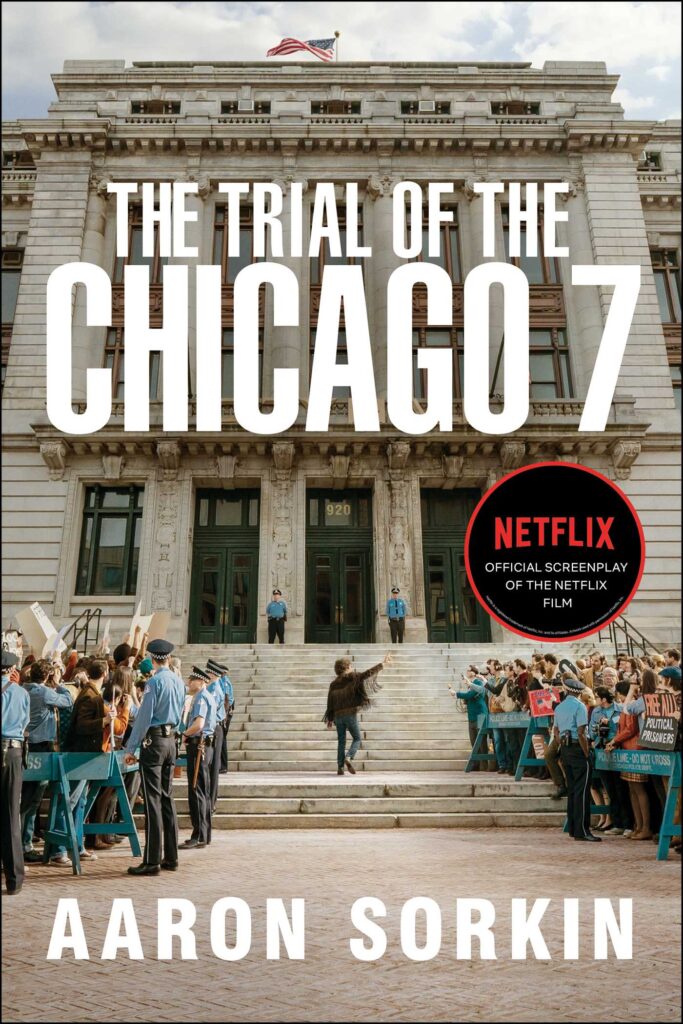
What is the relationship between democracy and free expression? What about civil protest and the rule of law? Sorkin’s 2020 film, “The Trial of the Chicago Seven” is an imaginative retelling of the 1969 trial of seven social organizers whose movements protested the 1968 Democratic National Convention. It presses us to consider these questions and the role of trial courts in discerning justice for democratic societies.
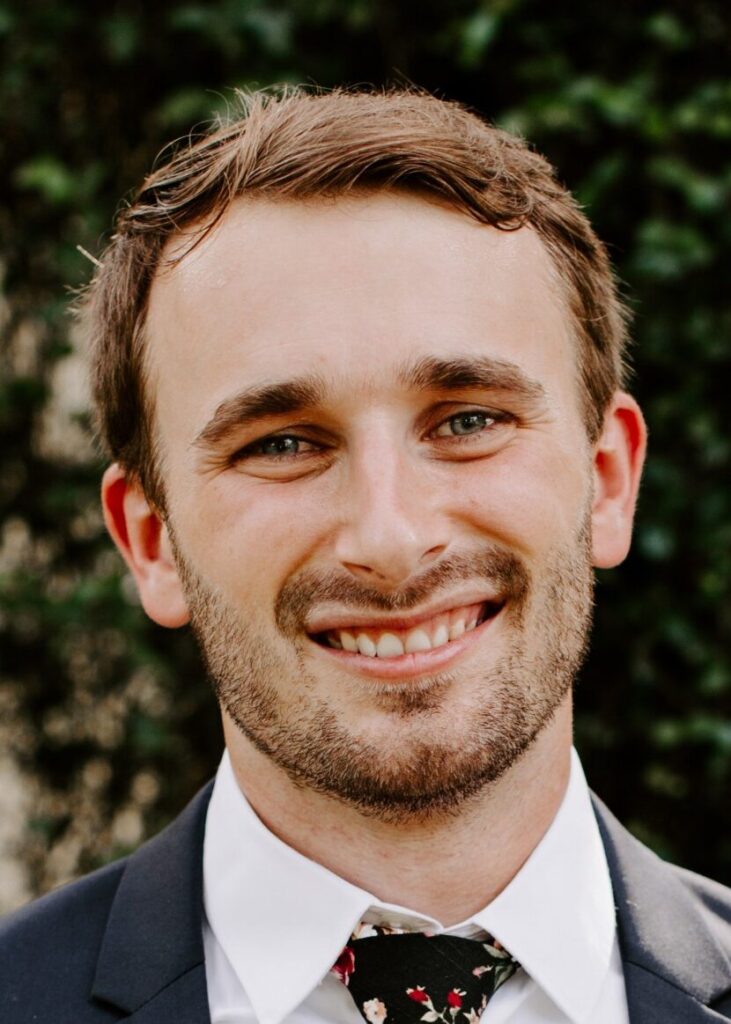
Dr. Bryan M Ellrod has served as the Director of Pre-Law at Wake Forest since 2023. He also teaches courses on literature, ethics, and the legal humanities in the program for Interdisciplinary Humanities. His most recent publications cover topics including law and artificial intelligence, as well as the intersections of law, ethics, and religion in border securitization.
Discussion Leader: Dr. Kaitlin Moore
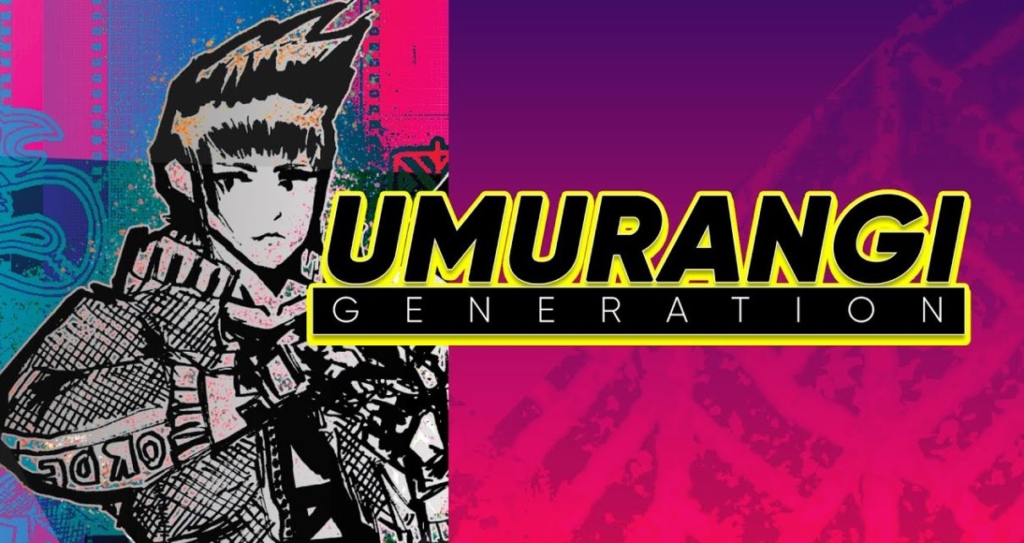
The video game Umurangi Generation presents players with a world that is at once alien and hauntingly familiar. On the one hand, the story is dystopian and strange: surrounding a besieged Tauranga (a city on the North Island of New Zealand) are mecha robots and enormous extraterrestrial monsters, crimson skies and an occupying army declaring martial law. On the other hand, as the game’s creator, Māori developer Naphtali Faulkner (Ngāi Te Rangi), notes: the bloody sunsets recall the destructive wildfire seasons of the recent decade; the massive retaining walls and myriad checkpoints around Tauranga evince the visual synecdoches of geopolitical tensions surrounding immigration, refugeeism, and apartheid; and the alien invaders–these indescribable, ineffable monstrosities silhouetted against the horizon–metaphorize the psychological estrangement that comes from trying to reckon with plural planetary crises. Developed in 2020 in the wake of the Australian bushfires and the Covid-19 pandemic, both earmarked by government mismanagement and the institutional neglect of the Indigenous communities most affected, Umurangi Generation empowers players to construct a multivalent sensitivity to a world on the brink of collapse, one which, in the end, spares no one, the player included. The goal is not to outmaneuver or avoid the end of the world; the goal is bringing to light the forces that have made such survival untenable, while at the same time resisting apocalyptic cynicism through small acts of stubborn, defiant joy: tagging walls with the likenesses of guardian hei-tiki and taniwha, attending neon-backlit dance parties, and chilling on rooftops overlooking the sacred Mauao. In this session, we will play through Umurangi Generation together, discussing how video games in general, and Indigenously-determined games specifically, self-reflexively collapse the separation between player and the material referents through which apocalypse may be affectively and phenomenologically registered, with apocalypse, as argued by Indigenous scholars like Kyle Powys Whyte, figured not as a singular eschatological event but an iteration in ongoings cycle of violence and survivance. We will examine how Umurangi Generation presents a uniquely Indigenous articulation of the “brave new world,” one which compels players to bear witness to ongoing ecological devastation and resist the neoliberal and colonial institutions that attempt to obscure, sanitize, and stage reactionary interventions to that same devastation.
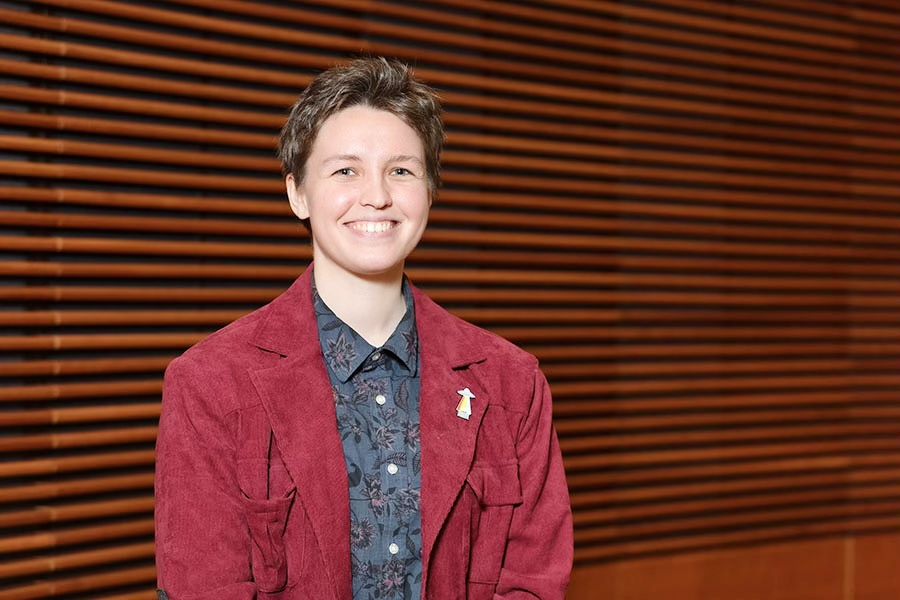
Kaitlin Moore is an assistant professor in the English Department specializing in the environmental humanities, Indigenous studies, cosmology, and new media and game studies. Their research explores how cosmology is scaffolded by and activated within multimodal literary productions to reveal the entanglements between human cultures, multiscalar ecologies, and the broader cosmos. They have published widely on Indigenous new media, ecopoetic practices, and the evolving role of games and virtual reality in shaping narratives of place and belonging. Their current book projects include an environmental humanities survey of Maori writer Keri Hulme’s work as well as a monograph on virtual reality and cosmological ecopoetics, foregrounding Indigenous video games in engaging with questions of relationality and planetary care.
Discussion Leader: Dr. Matthew Childs
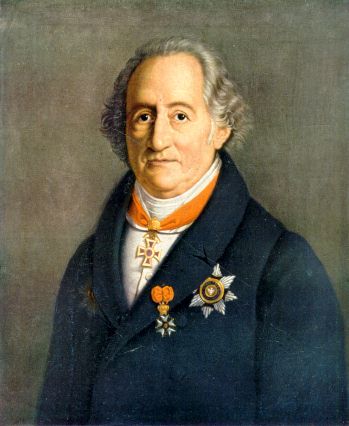
The world presently faces extraordinary challenges. Geopolitical conflicts, climate change, domestic socio-political uncertainty—all these things and more occupy the minds and cloud the futures of this next class of students. Students do indeed face “A Brave New World,” and they will require fortitude and skill to overcome and thrive. Yet, it is vitally important to recognize that such circumstances have been faced before and that they need not define every waking moment of a person’s life, especially in their formative years. It is necessary to teach students about more than just the temporary and contingent problems with which every generation must battle. Indeed, students require education about those things which, despite attempts to the contrary, have endured over the centuries and defined human existence. To this category belongs not the history of one empire or another, nor the dreadful circumstances of one age that might be said to have cast their shadow on the next. The eternal and nigh transcendental experiences of youth, most importantly love, remain, reminding us of happiness and joy in even the most hellish situations. Goethe’s 1771 poem “Welcome and Departure” (Willkommen und Abschied) recounts in stunning lyric the encounter of lovers in the night, of arrival and farewell, and the capacity of love and beauty to endure. In words of passion, Goethe engenders in his reader an awareness of those invigorating yet passing, momentary yet eternal moments that define our lives, and which buttress us in difficult and trying times. There is no better way to confront brave new worlds than through the recognition that such worlds tremble before things most ancient, feelings everlasting: like love.
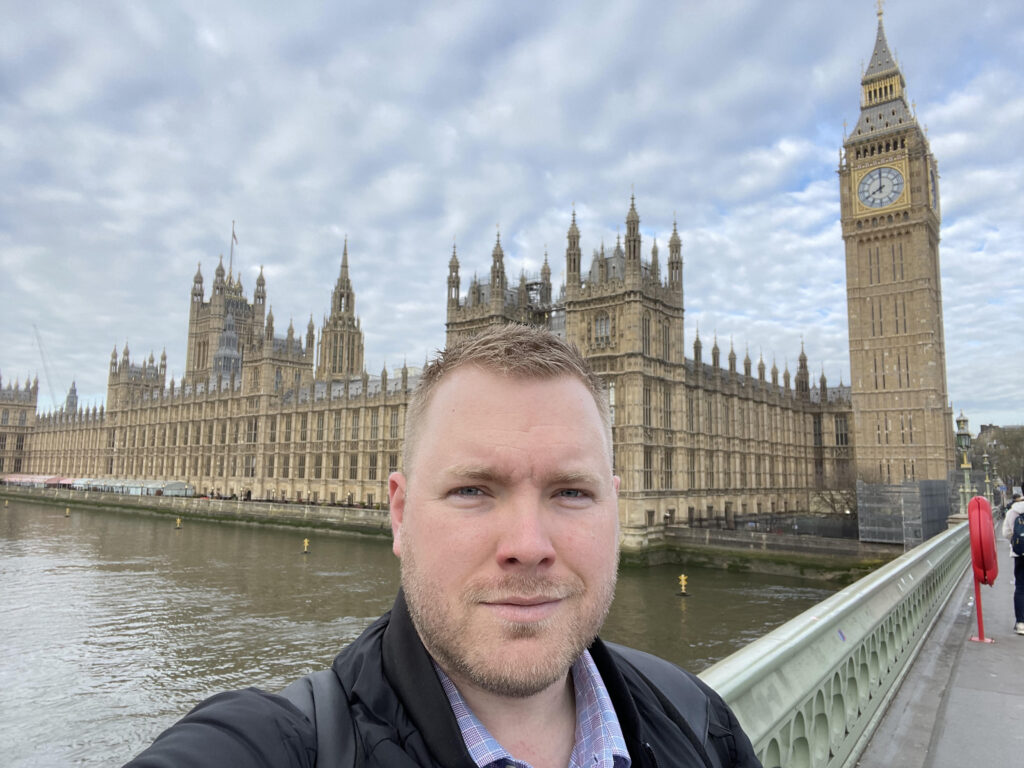
Matthew Childs is a Visiting Assistant Professor in the Department of German and Russian. He researches and teaches about German language and culture from the 18th Century to the Present. His work is in the Environmental Humanities, with concentrations in catastrophe studies and energy humanities, and in the study of Race, Imperialism, and Colonialism in the German context.
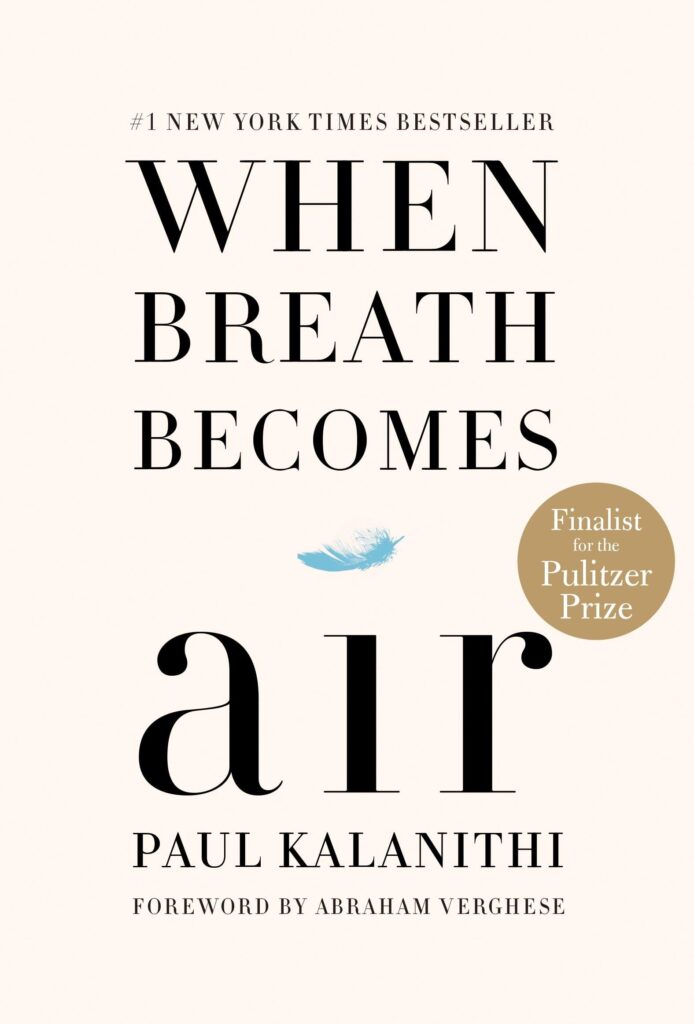
Discussion Leader: Professor Brian Calhoun
Healthcare / life and support systems/ AI and healthcare / empathy
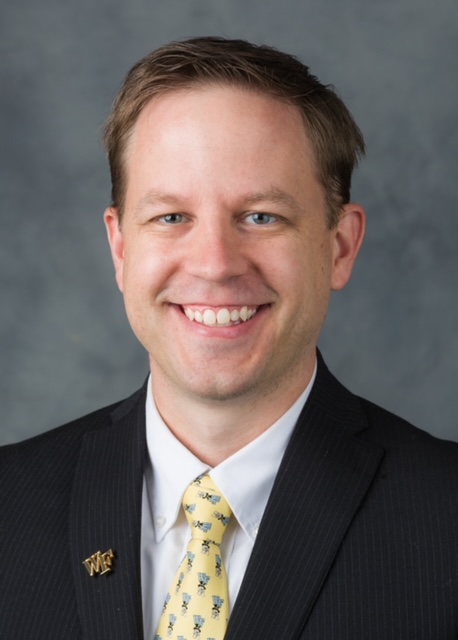
We’re pleased to welcome back Brian Calhoun for his fourth year with Project Wake! A faculty member in the Department of Education and senior faculty fellow in the first year residence hall – Hopkins Hall, Brian will be focusing on healthcare topics this year. His work also includes teaching in the “College to Career” series, guiding students as they explore various career paths and set future goals. Given his experience helping students navigate career choices, his session on healthcare is a perfect fit if you are considering a helping profession in this field.
Discussion Leader: Dr. Jon Smart with student co-leaders Caroline Carmody ’28 and Kaitlin Frate ’28
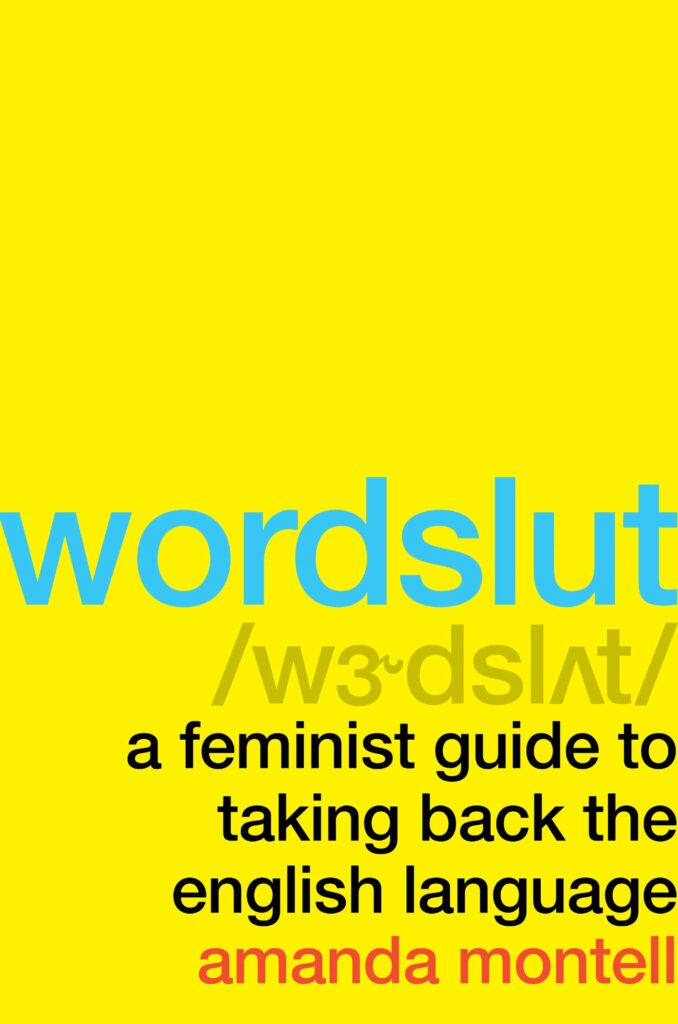
In this hilarious and thought-provoking book, Montell explores and challenges old ideas about the English language and how we talk about gender. She makes a case for coming to terms with the inherent prejudices and attitudes in how English is used while at the same time showing the reader how talking about language can be fun, compelling, and (occasionally) even shocking. She proposes a brave new approach to thinking about English as a wonderful, historied language that both reflects and contributes to our shared human experiences and how we see ourselves.
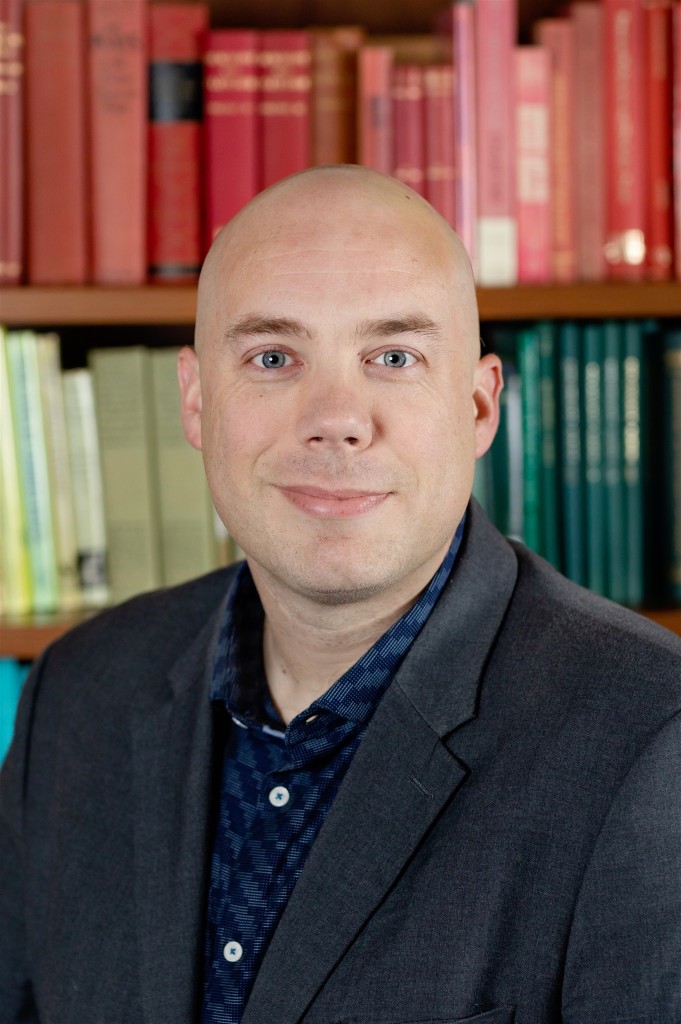
Jon Smart: I am a faculty member in the Writing and Linguistics programs. I teach courses on we use language across communities, geography, and types of communication. I am particularly excited about this book because it challenges commonly-held assumptions about what types of language are “right” and “proper” and about how gender and language are connected.
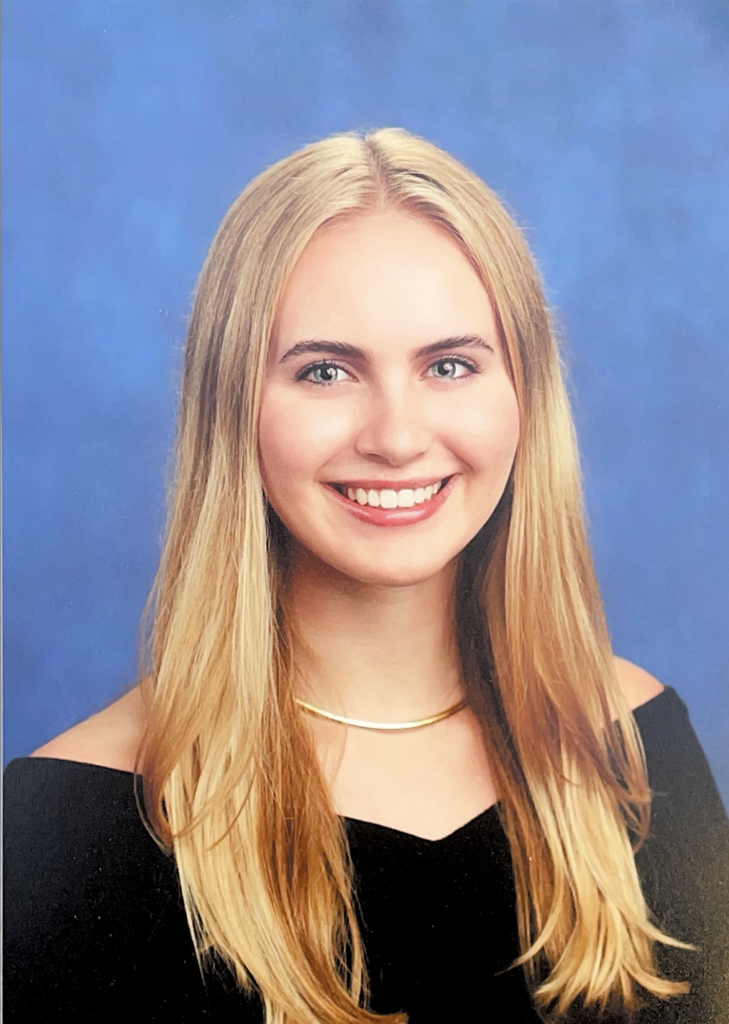
Caroline Carmody: I am a sophomore at Wake Forest University from Falls Church, Virginia (right outside of Washington, DC). I’m excited to connect that experience with Amanda Montell’s Wordslut and further examine how language shapes the identity of women and their positions of power.
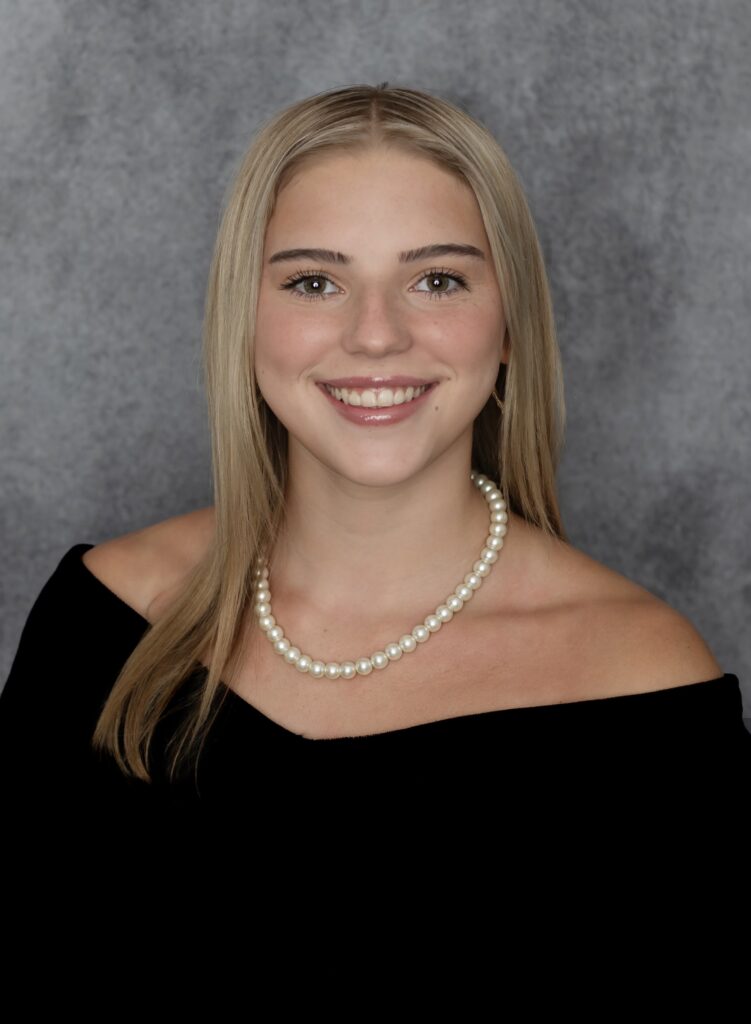
Kaitlin Frate : I’m a sophomore at Wake Forest University from Huntersville, North Carolina. I’m excited to continue studying through Amanda Montell’s book that is both timely and engaging.

